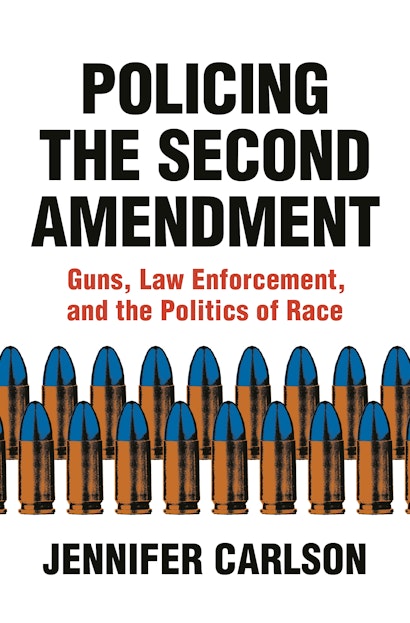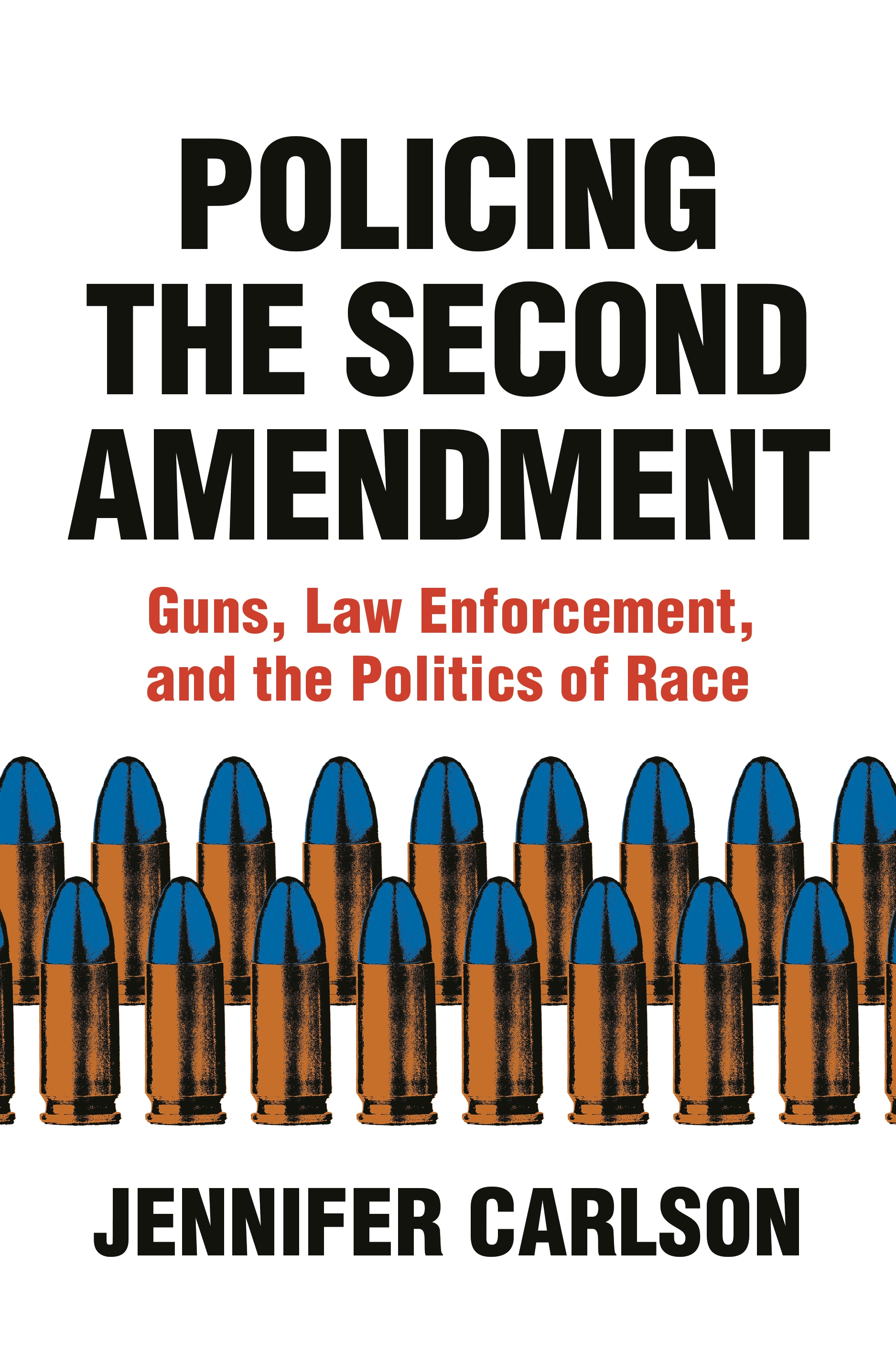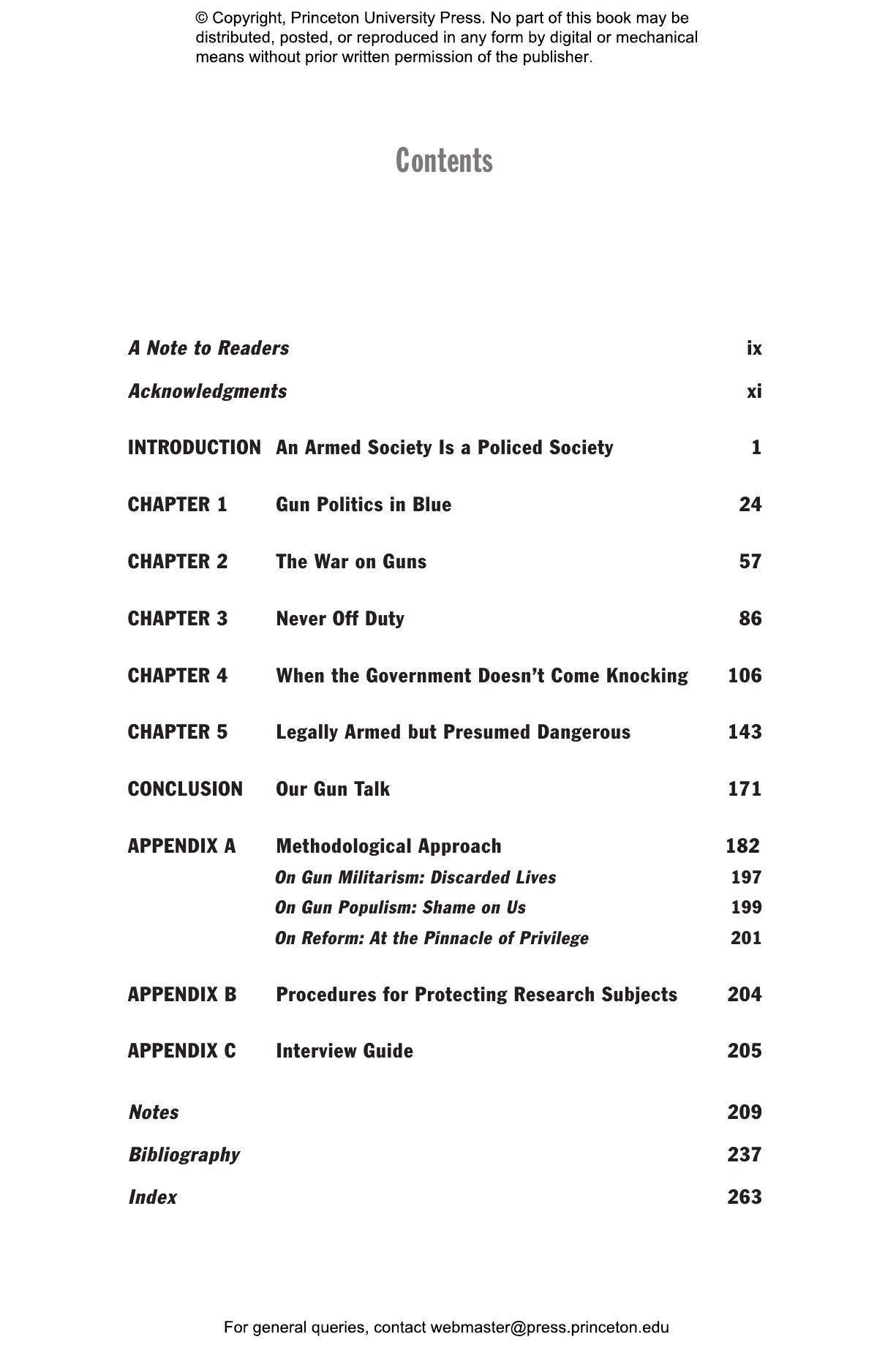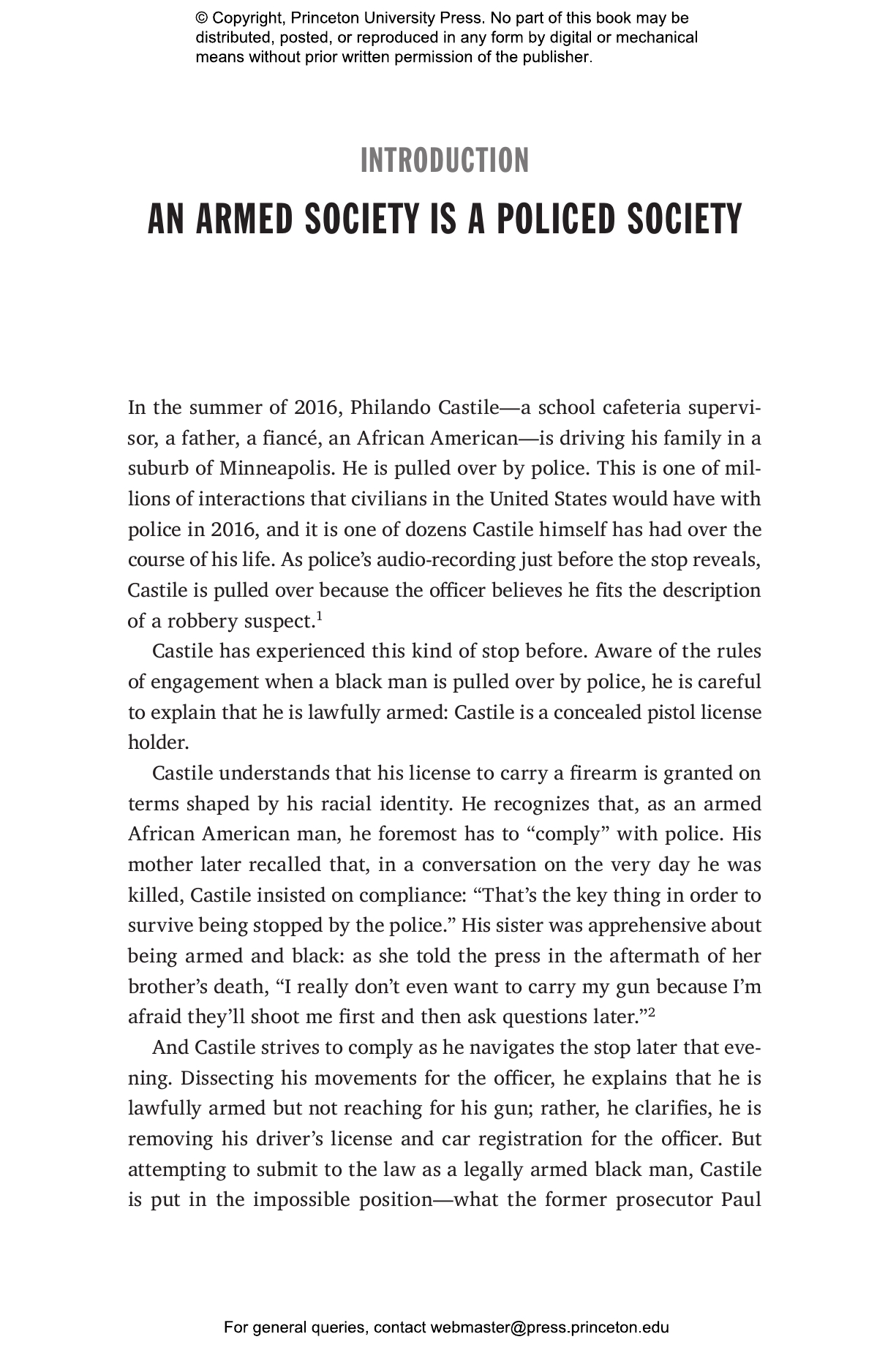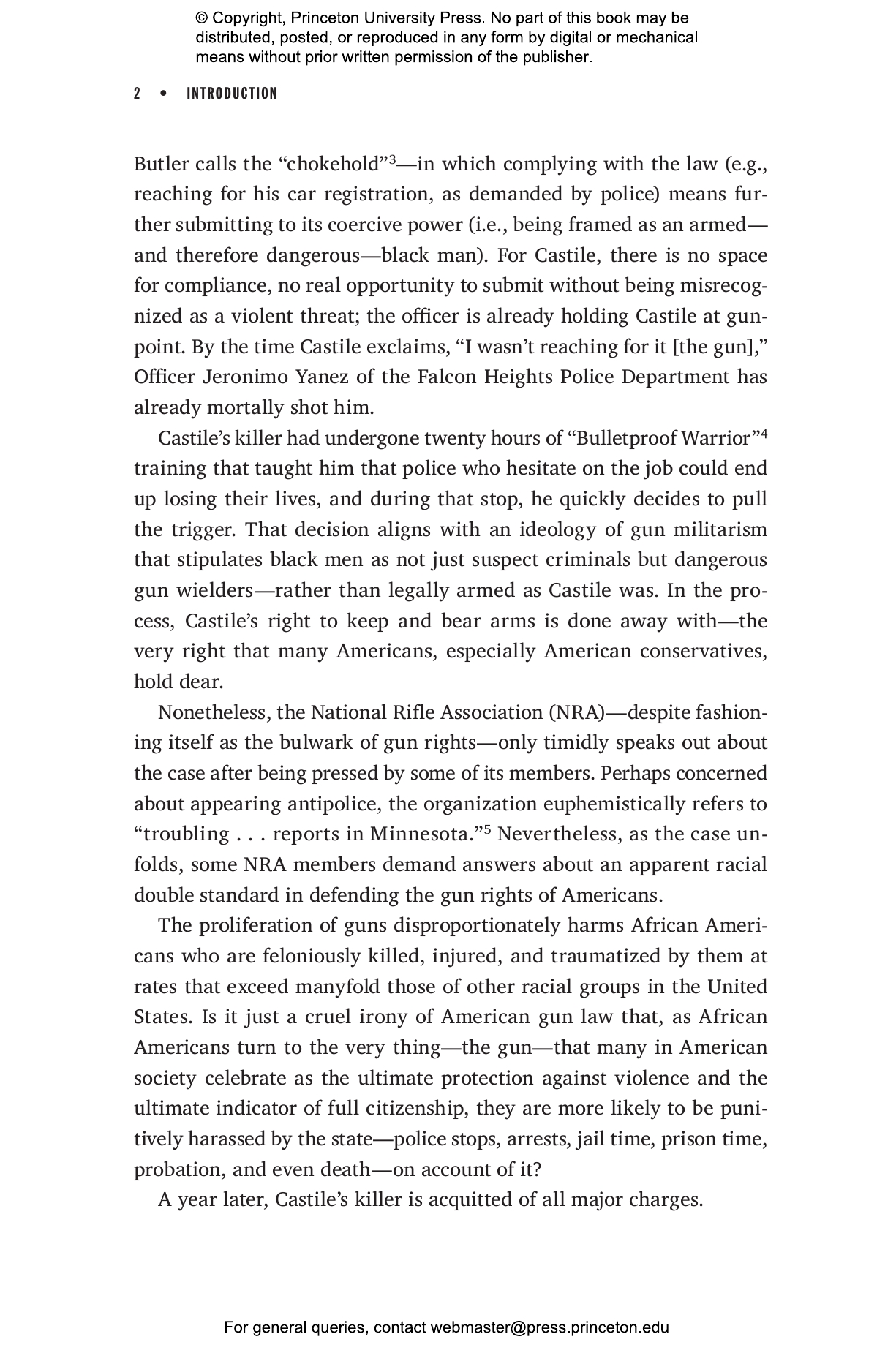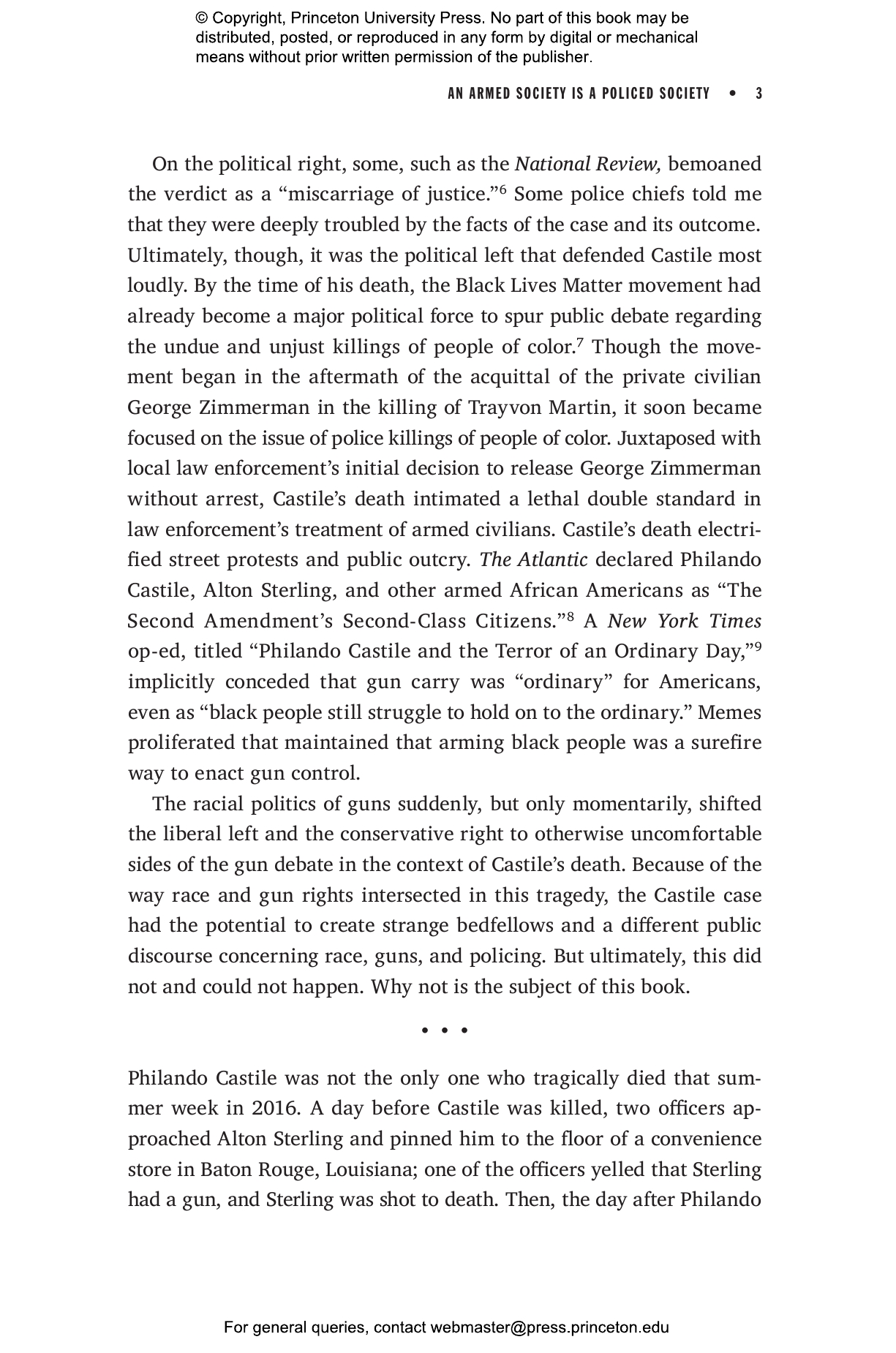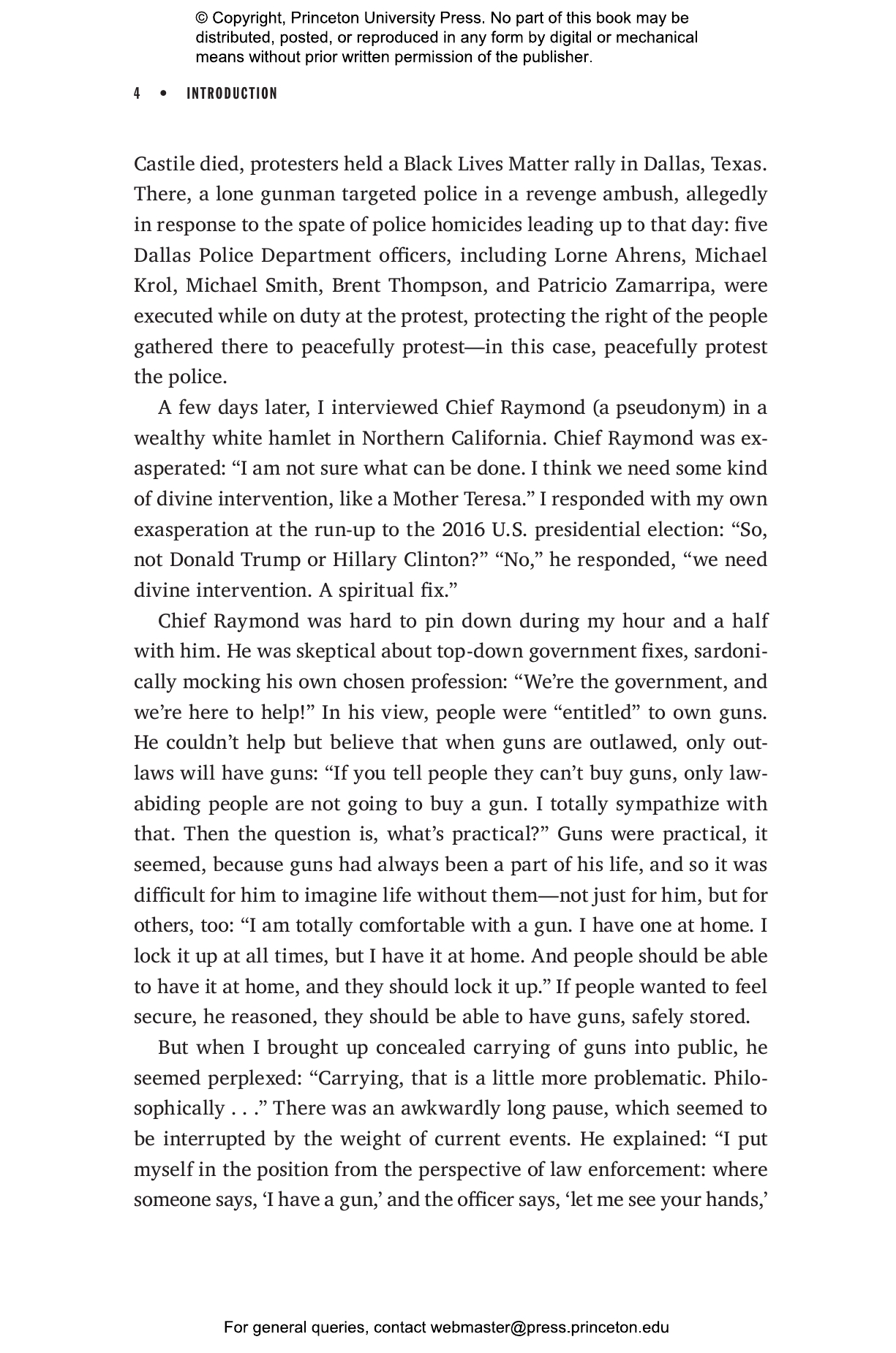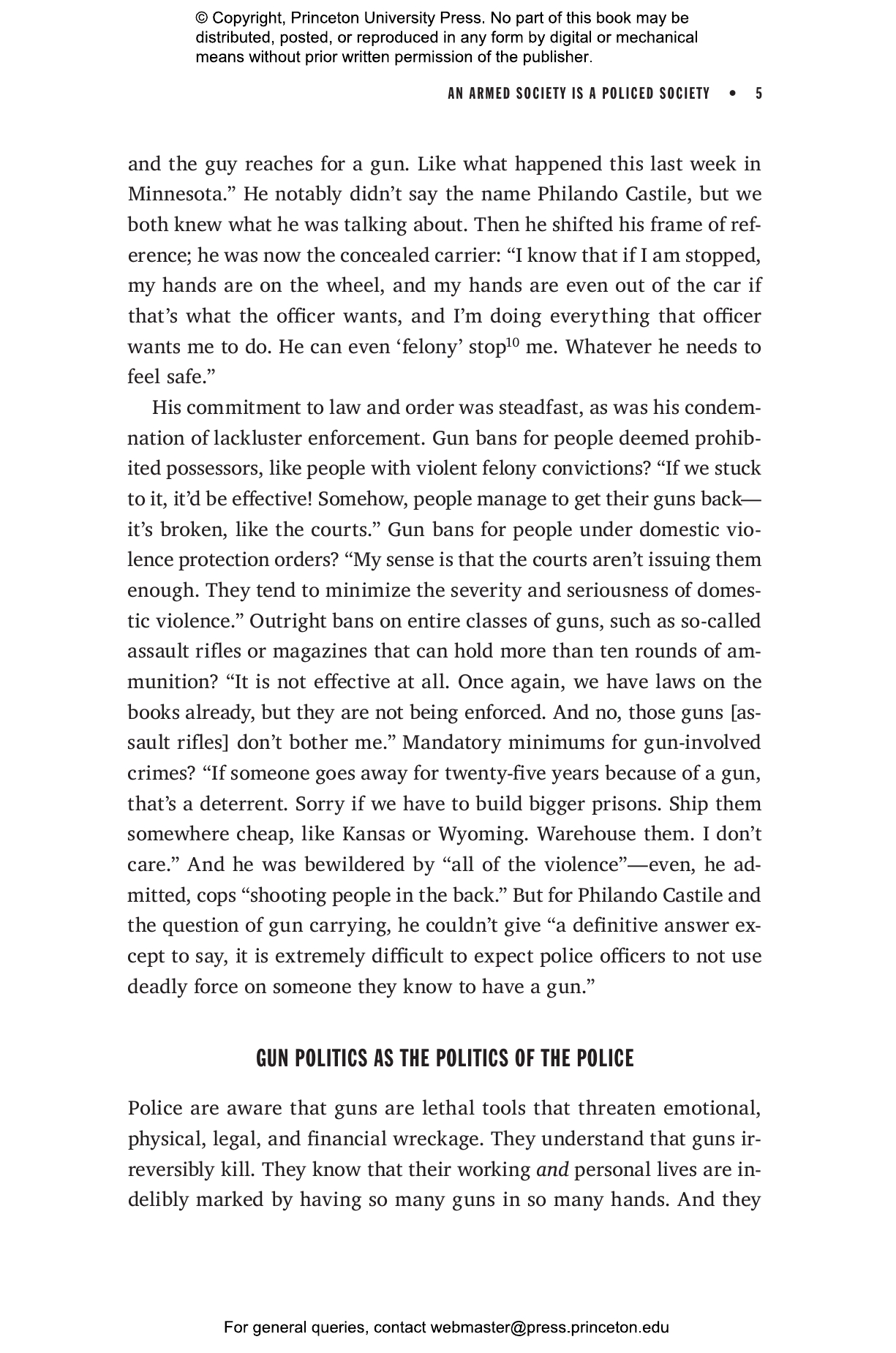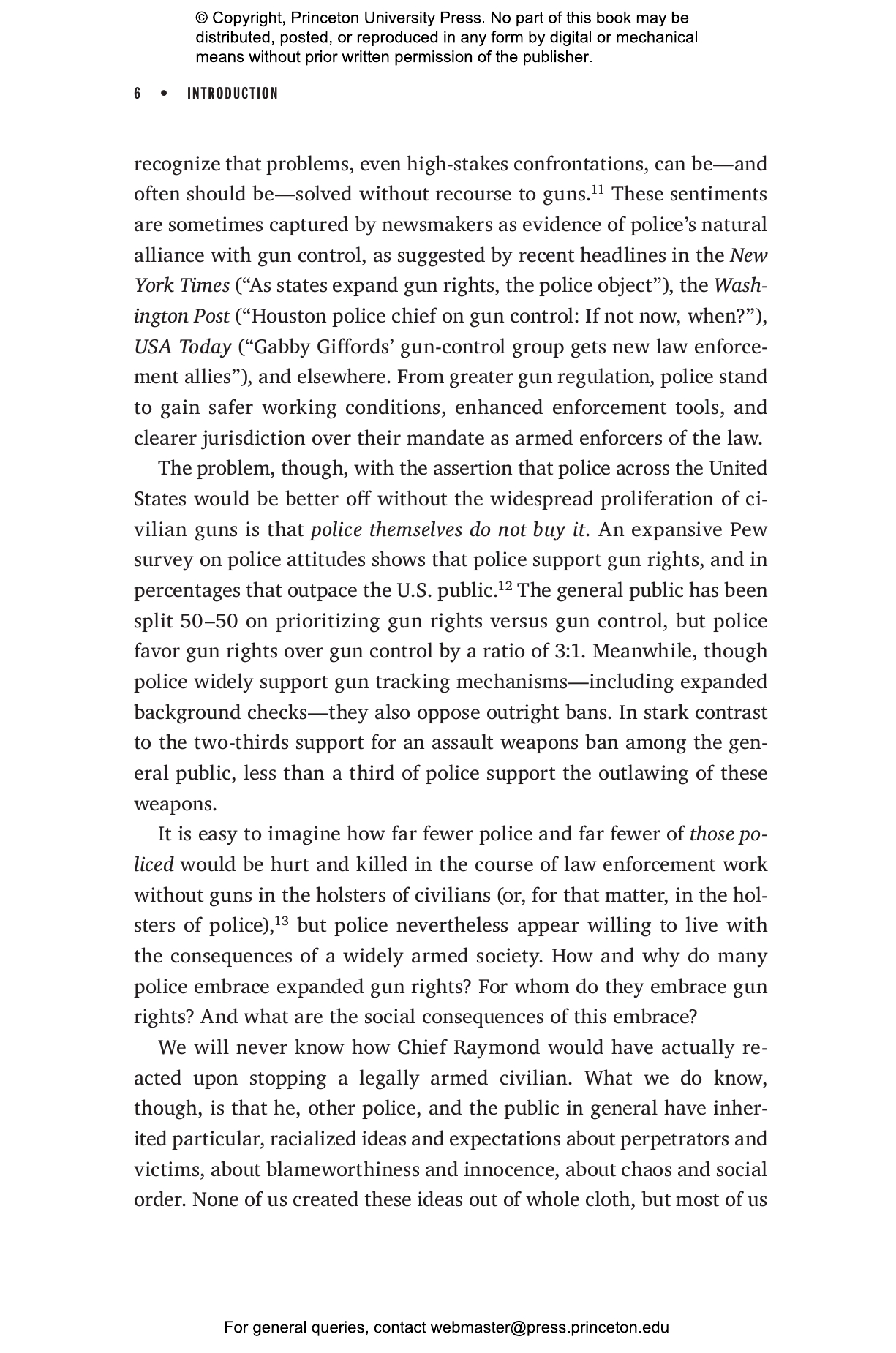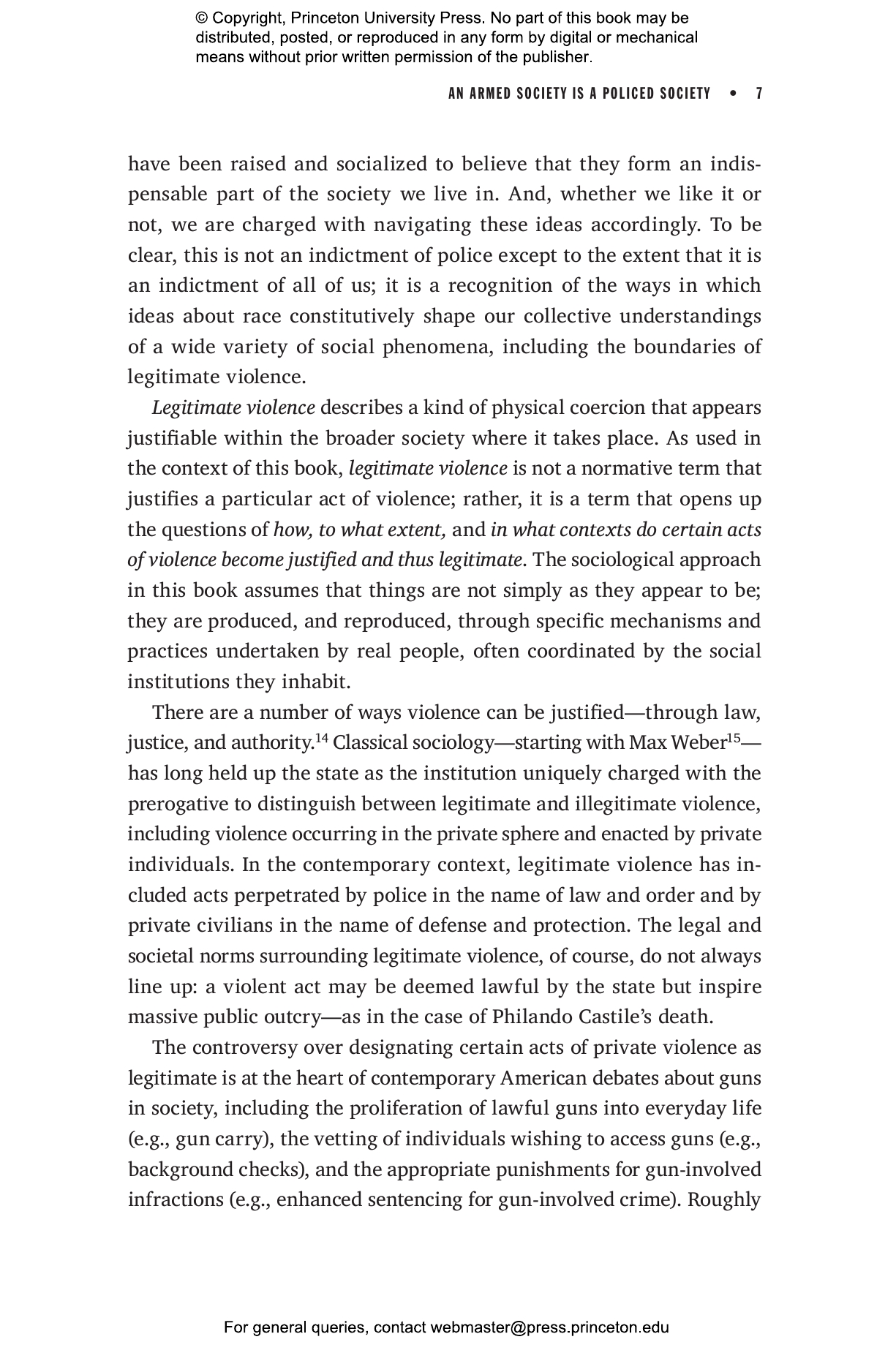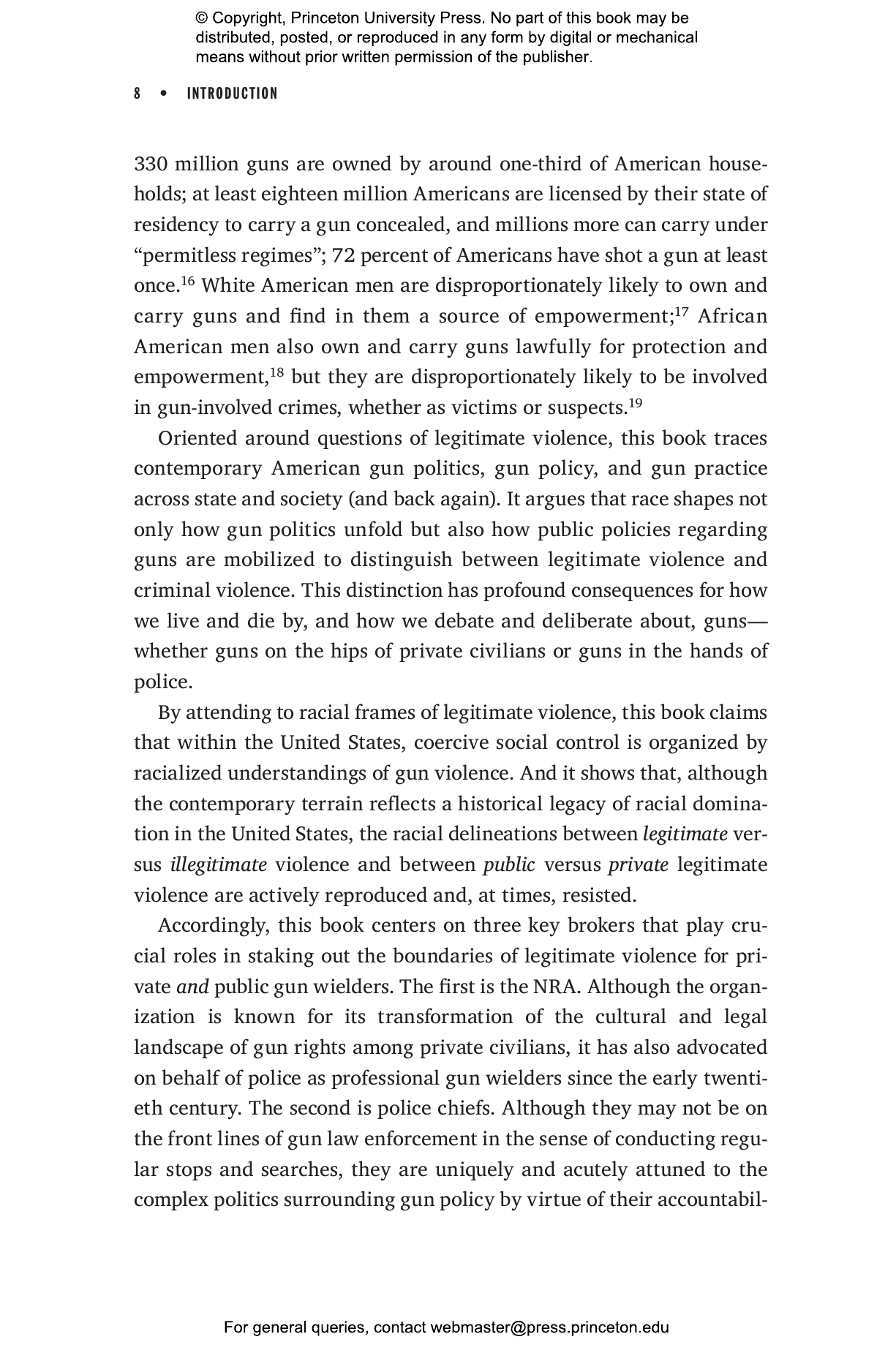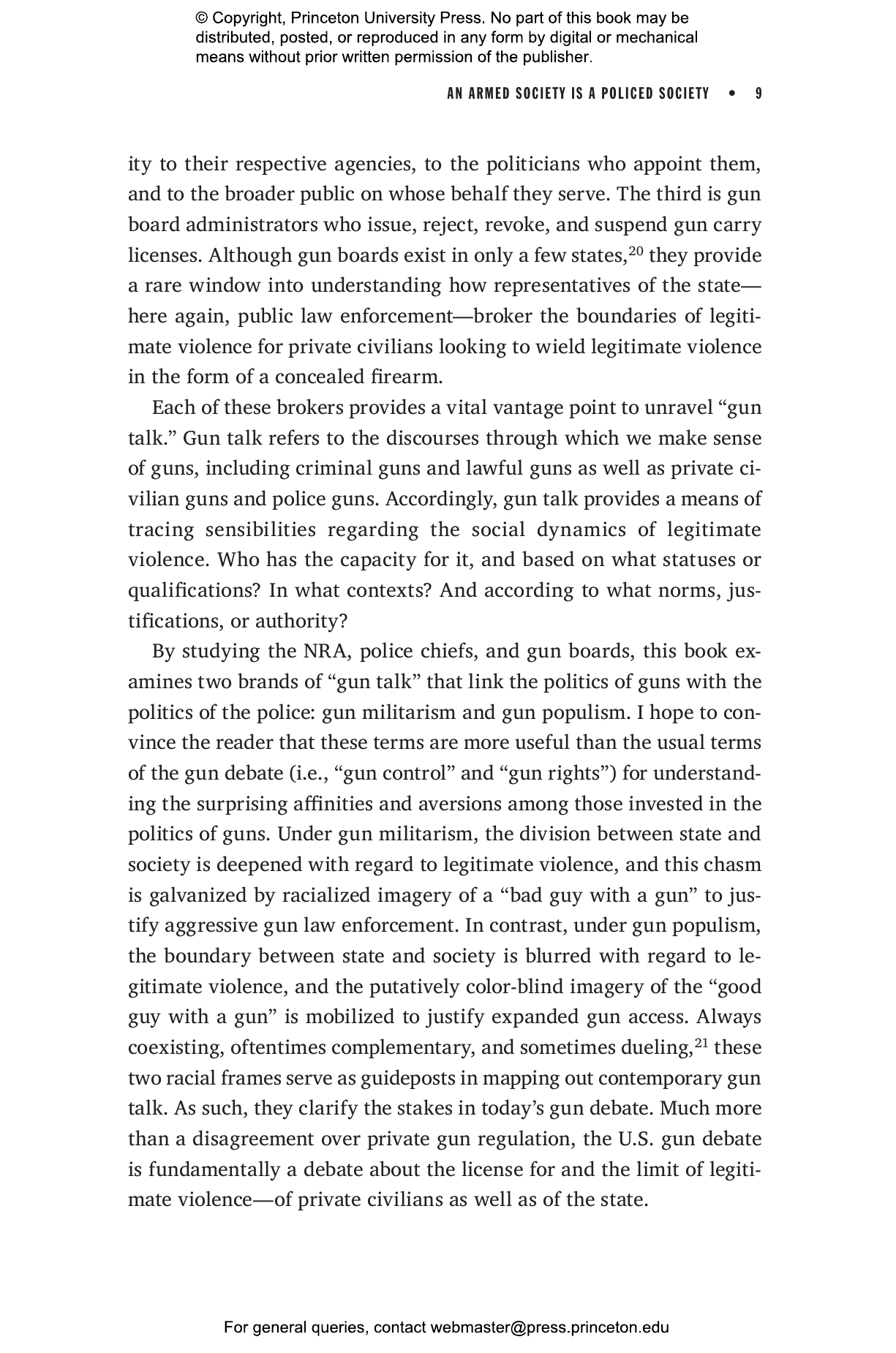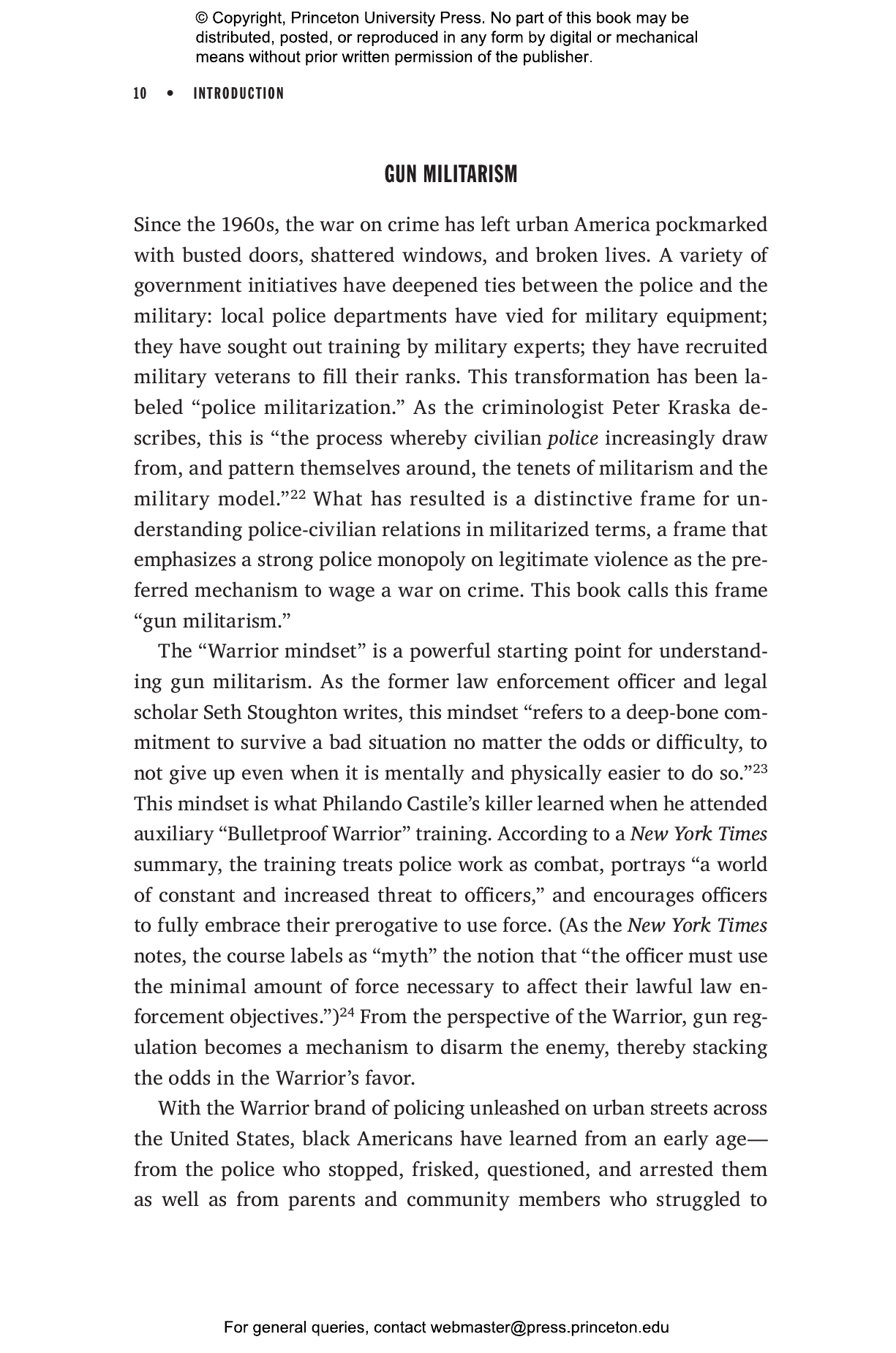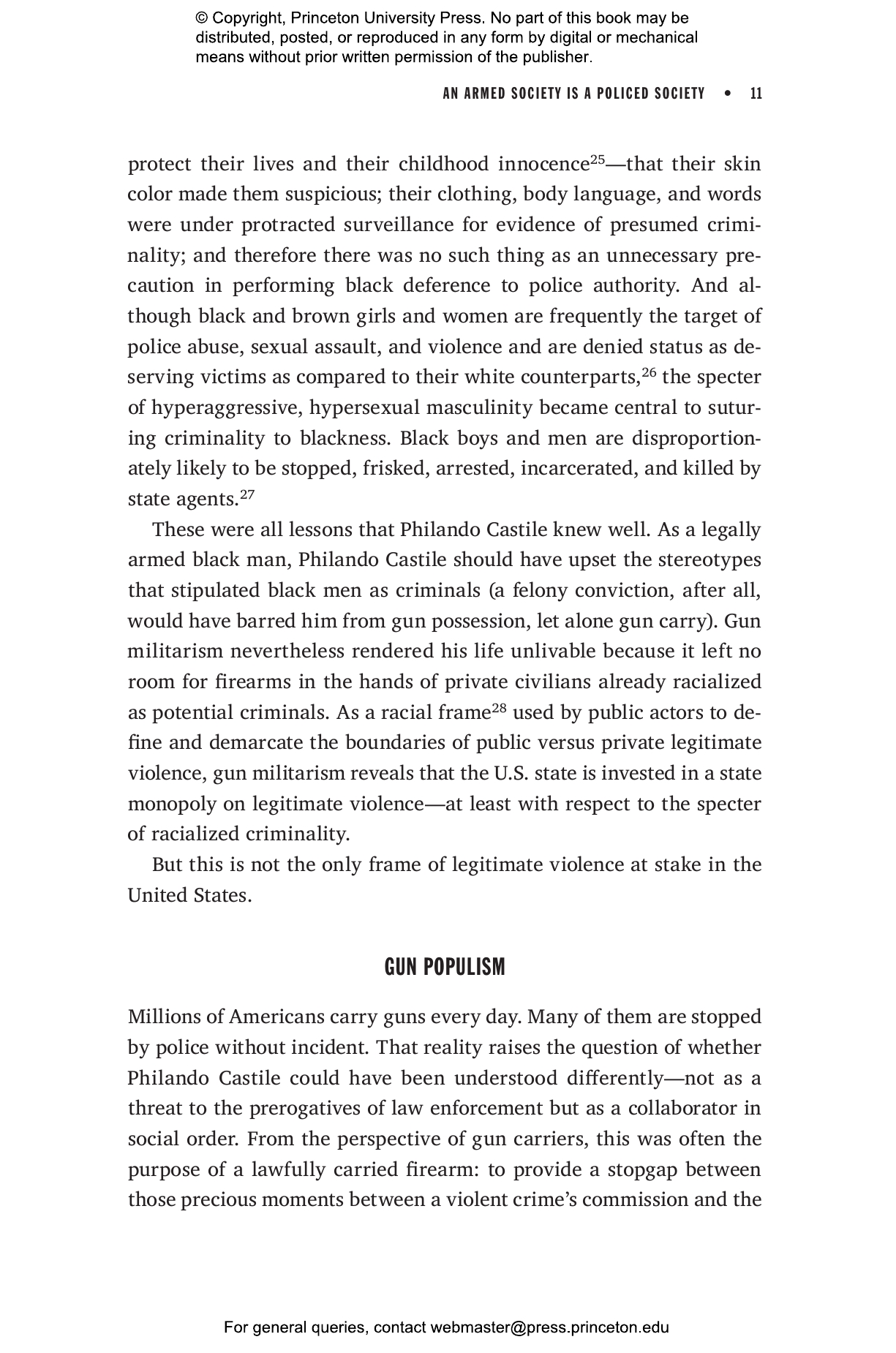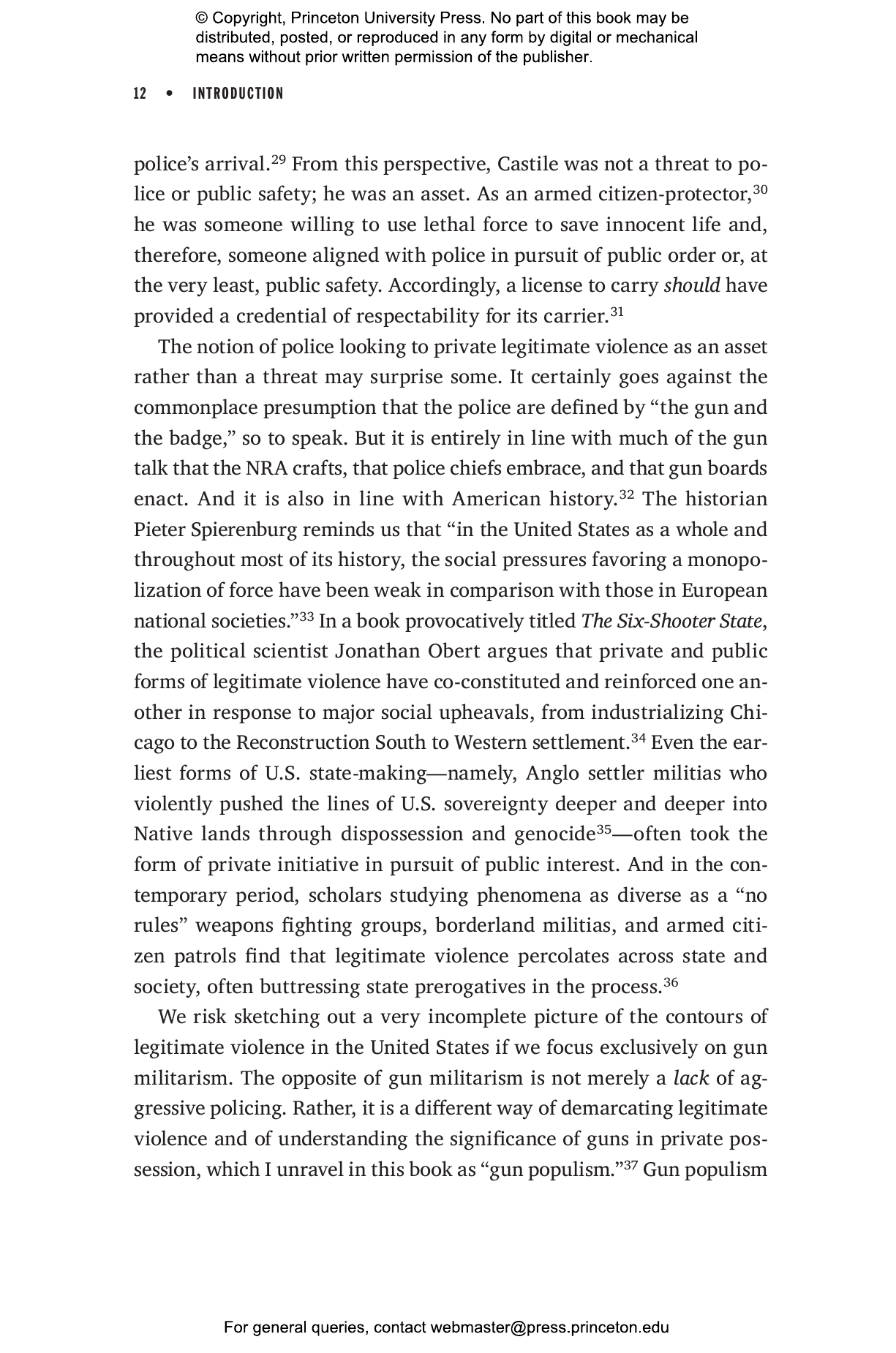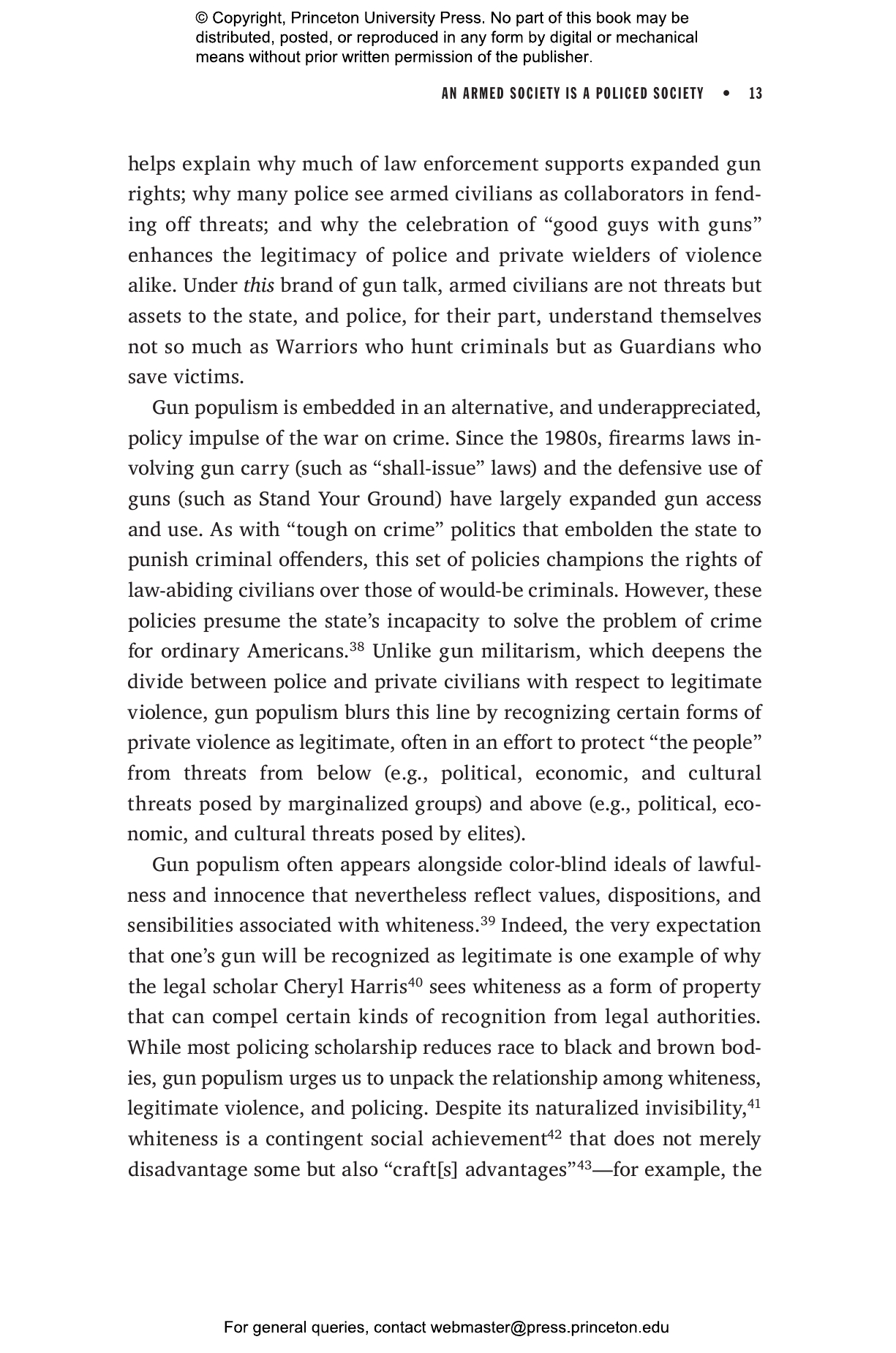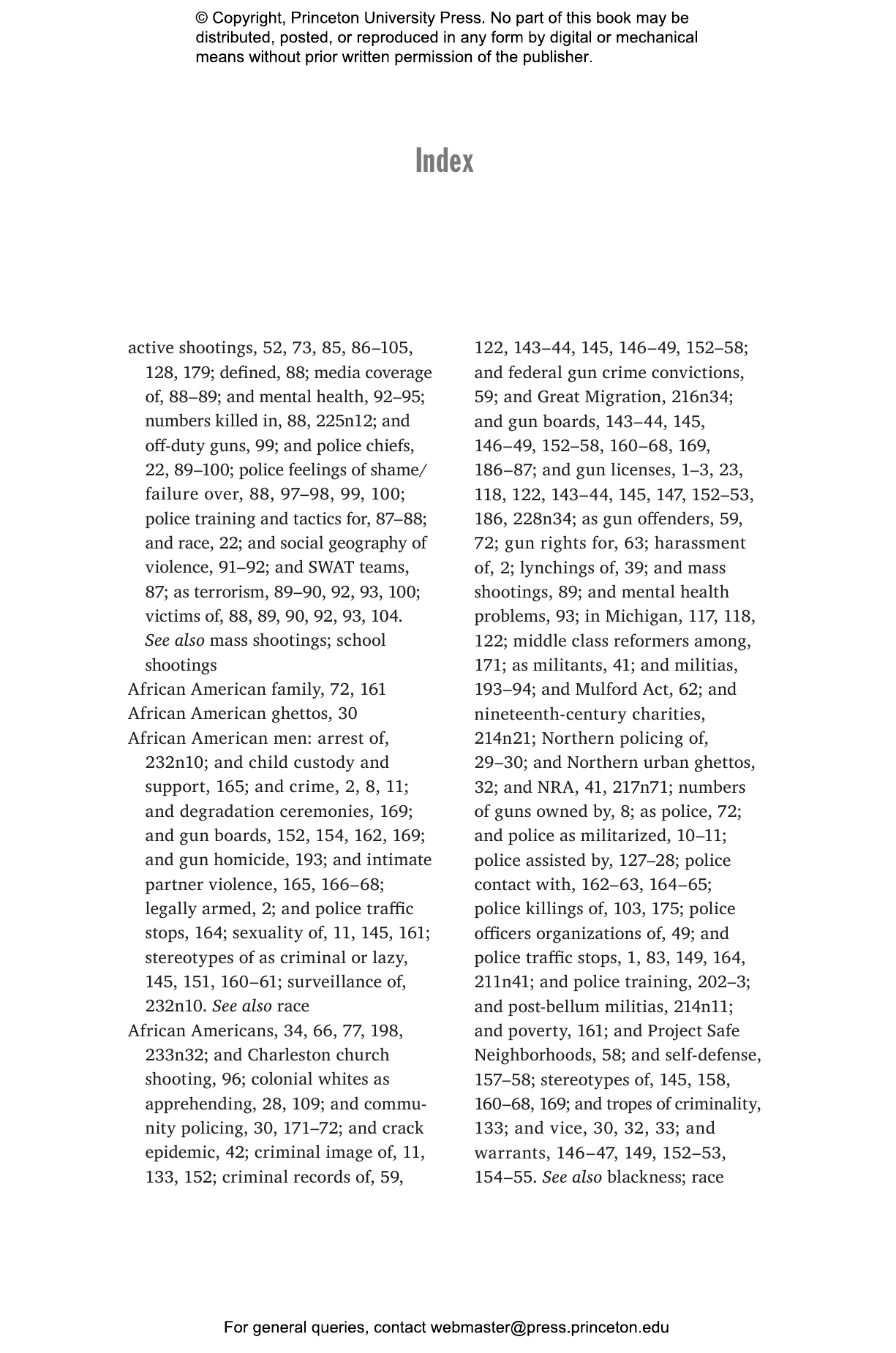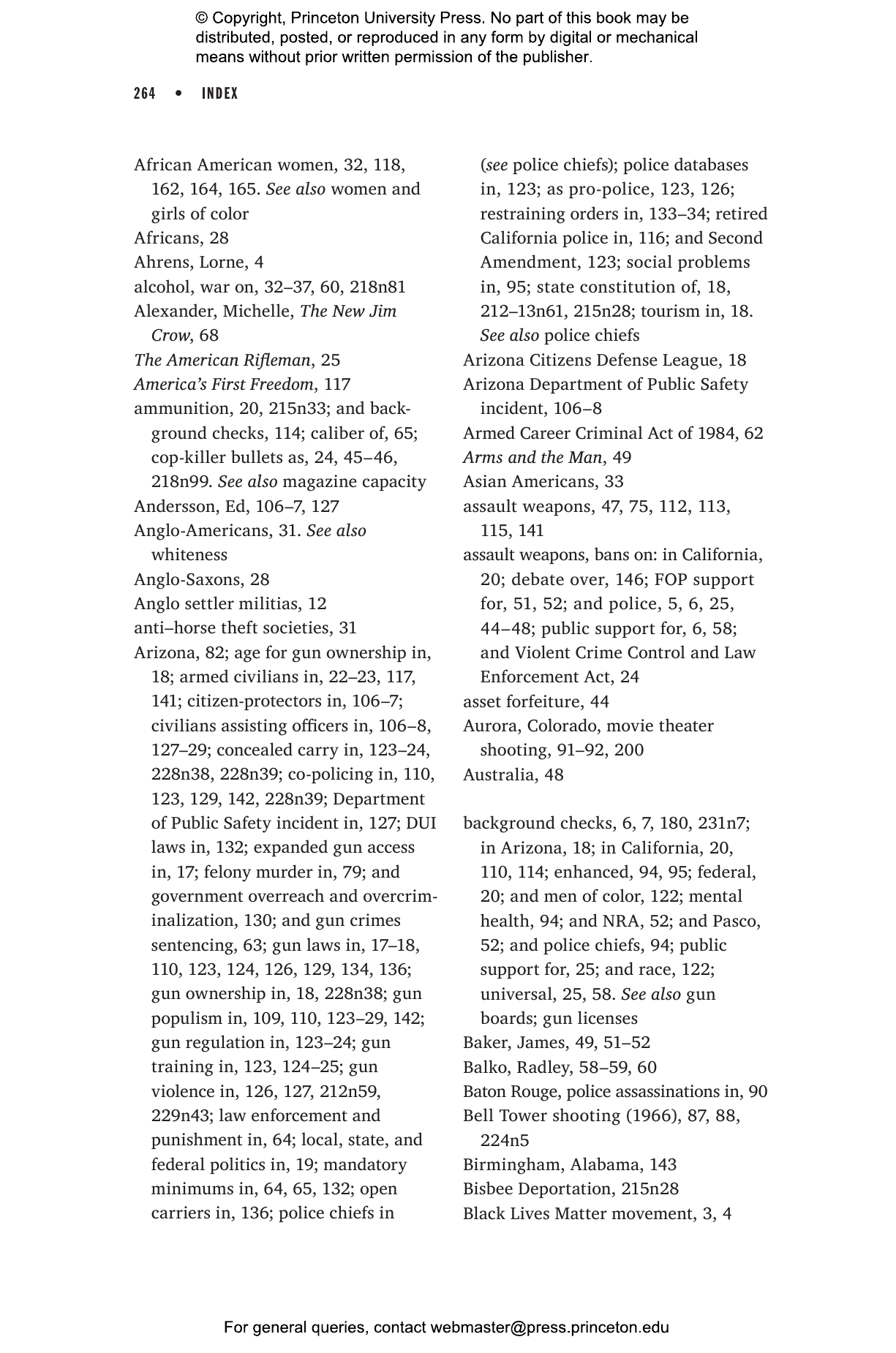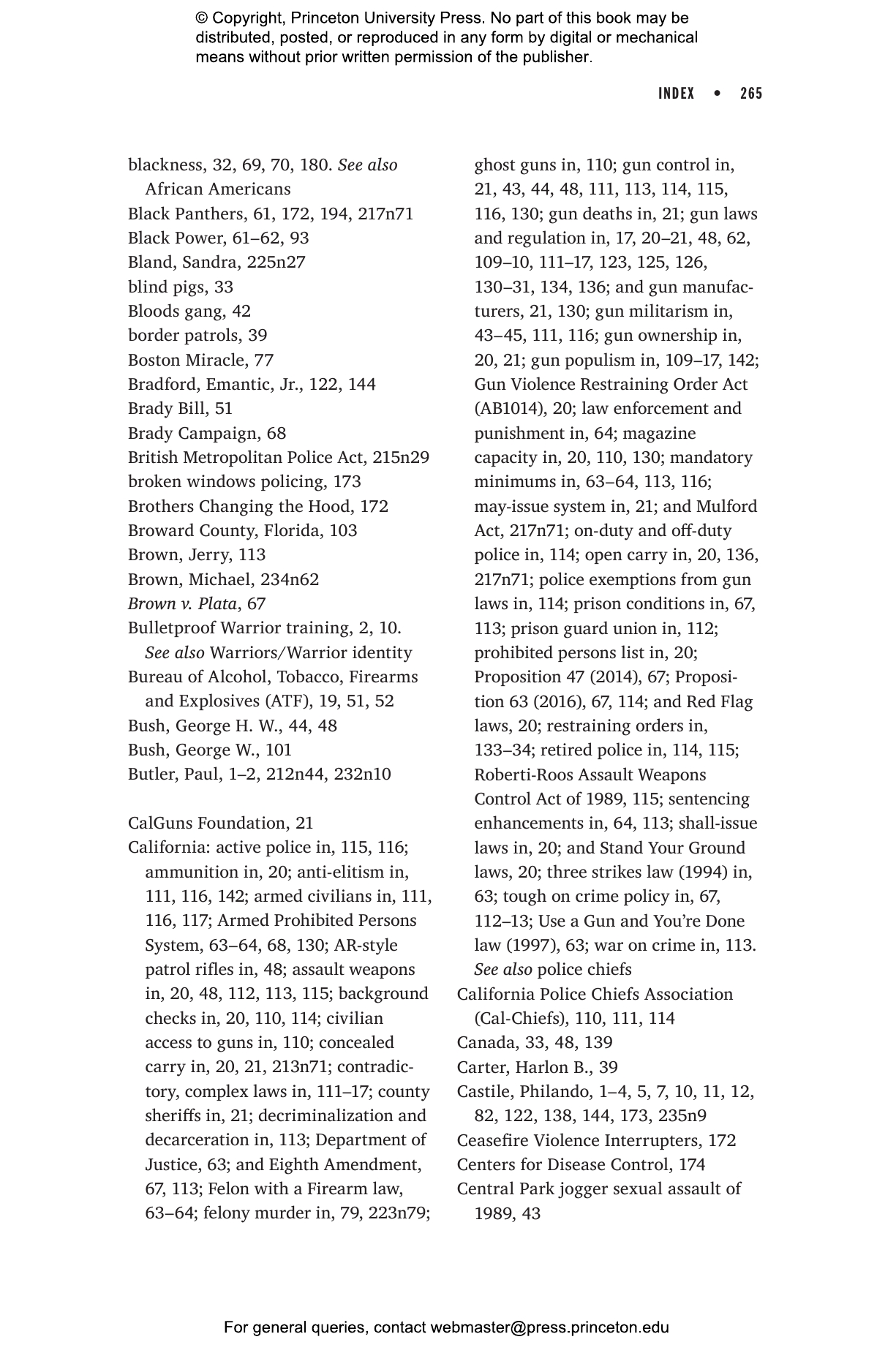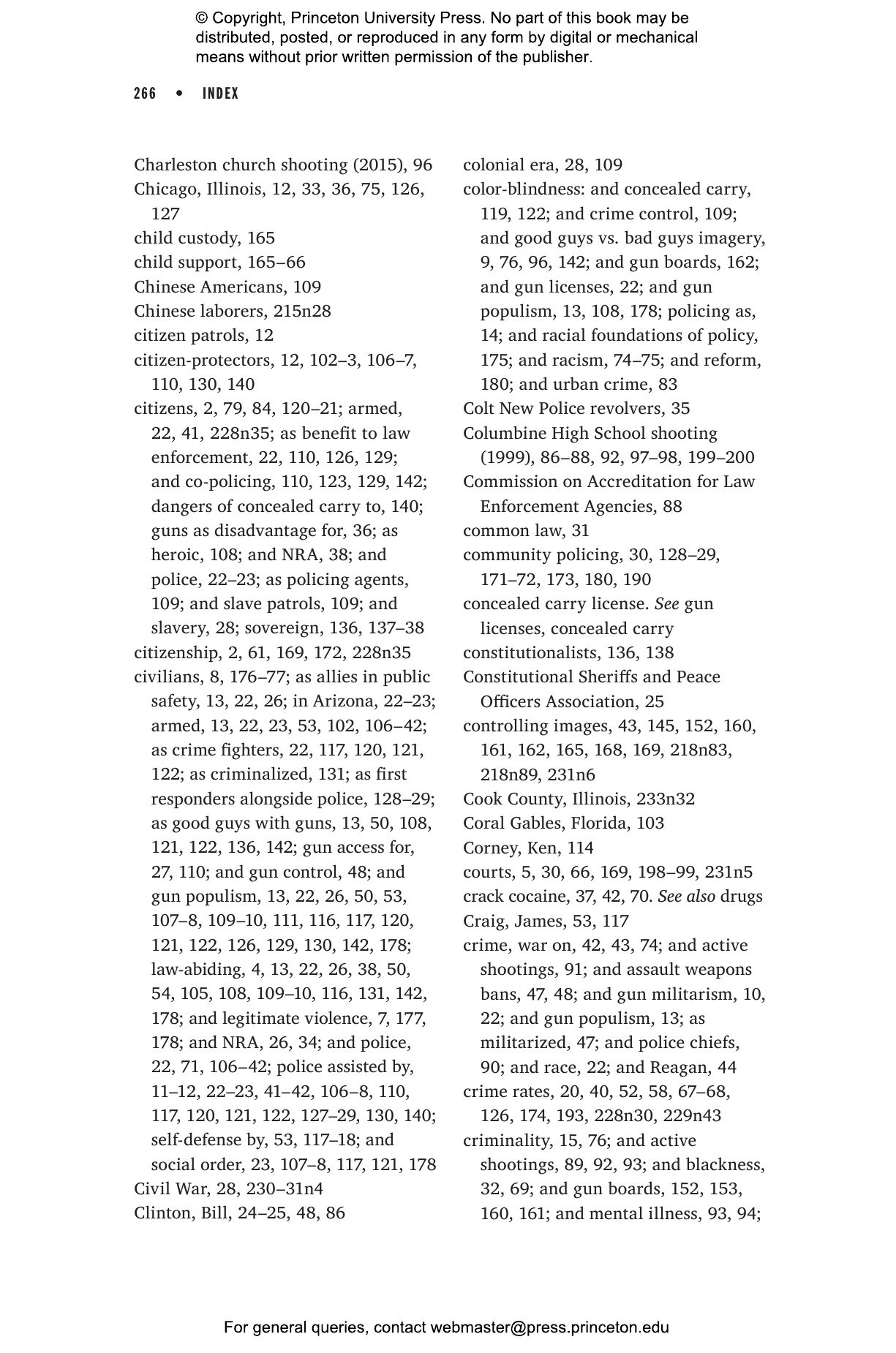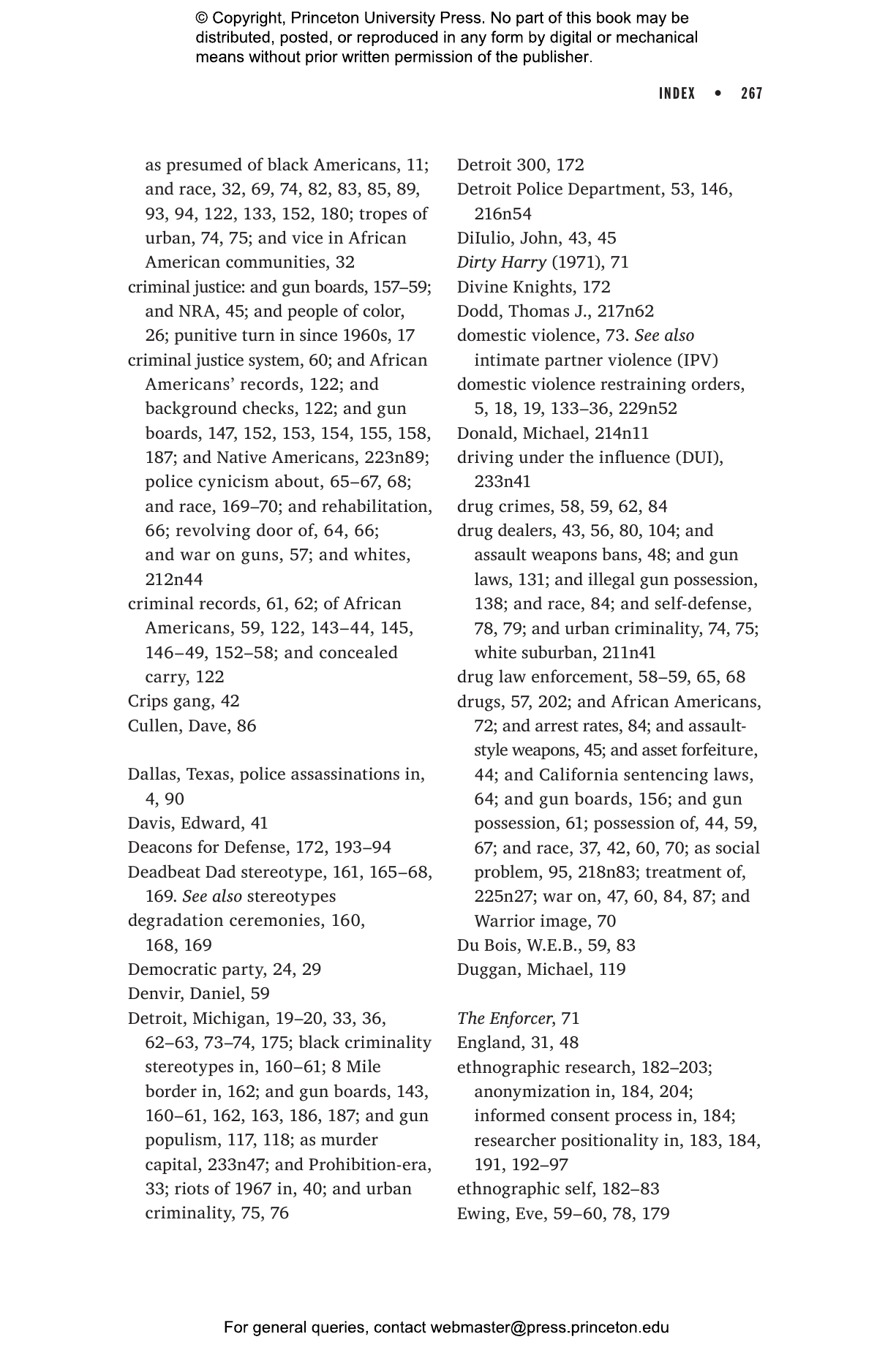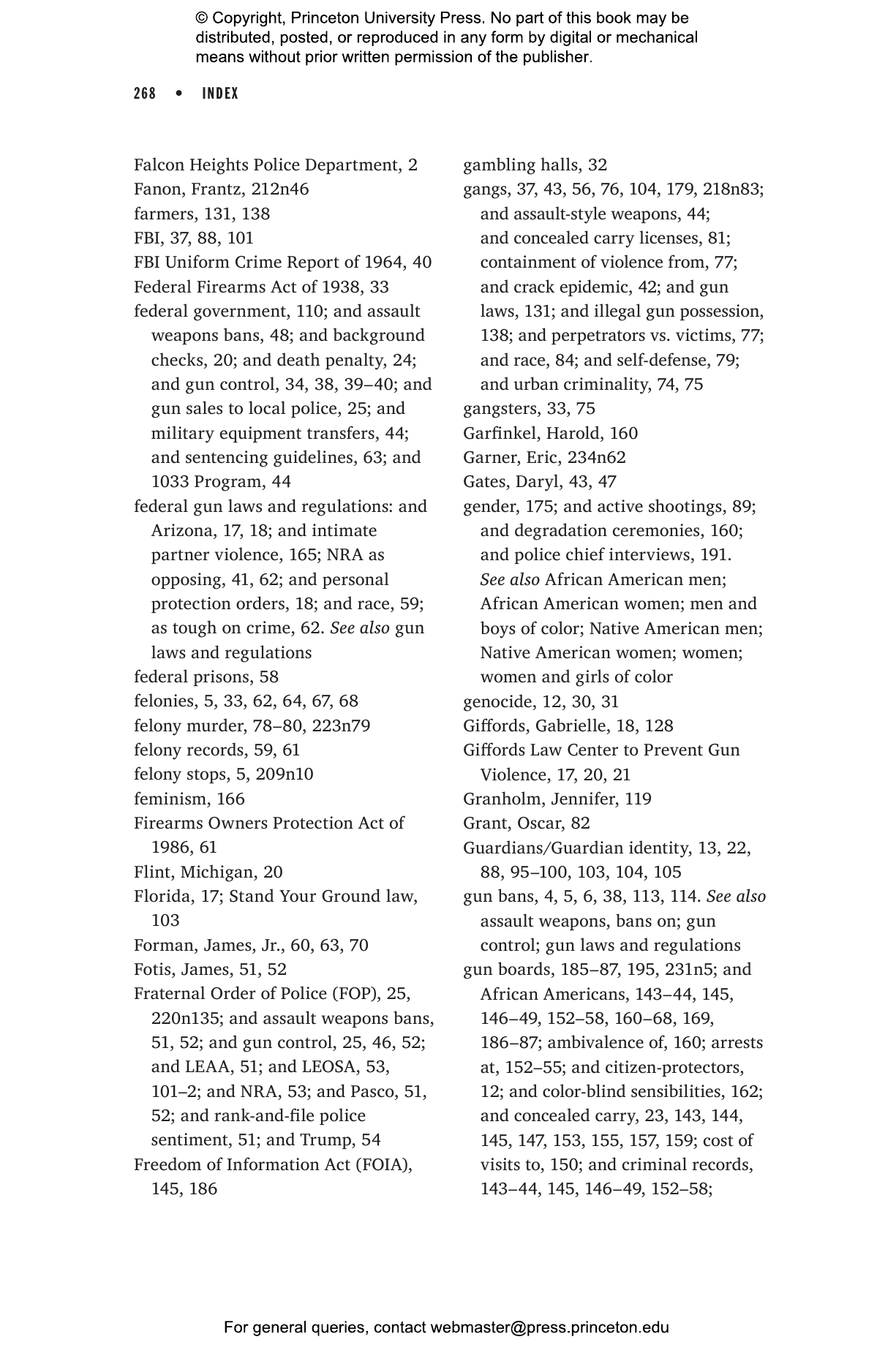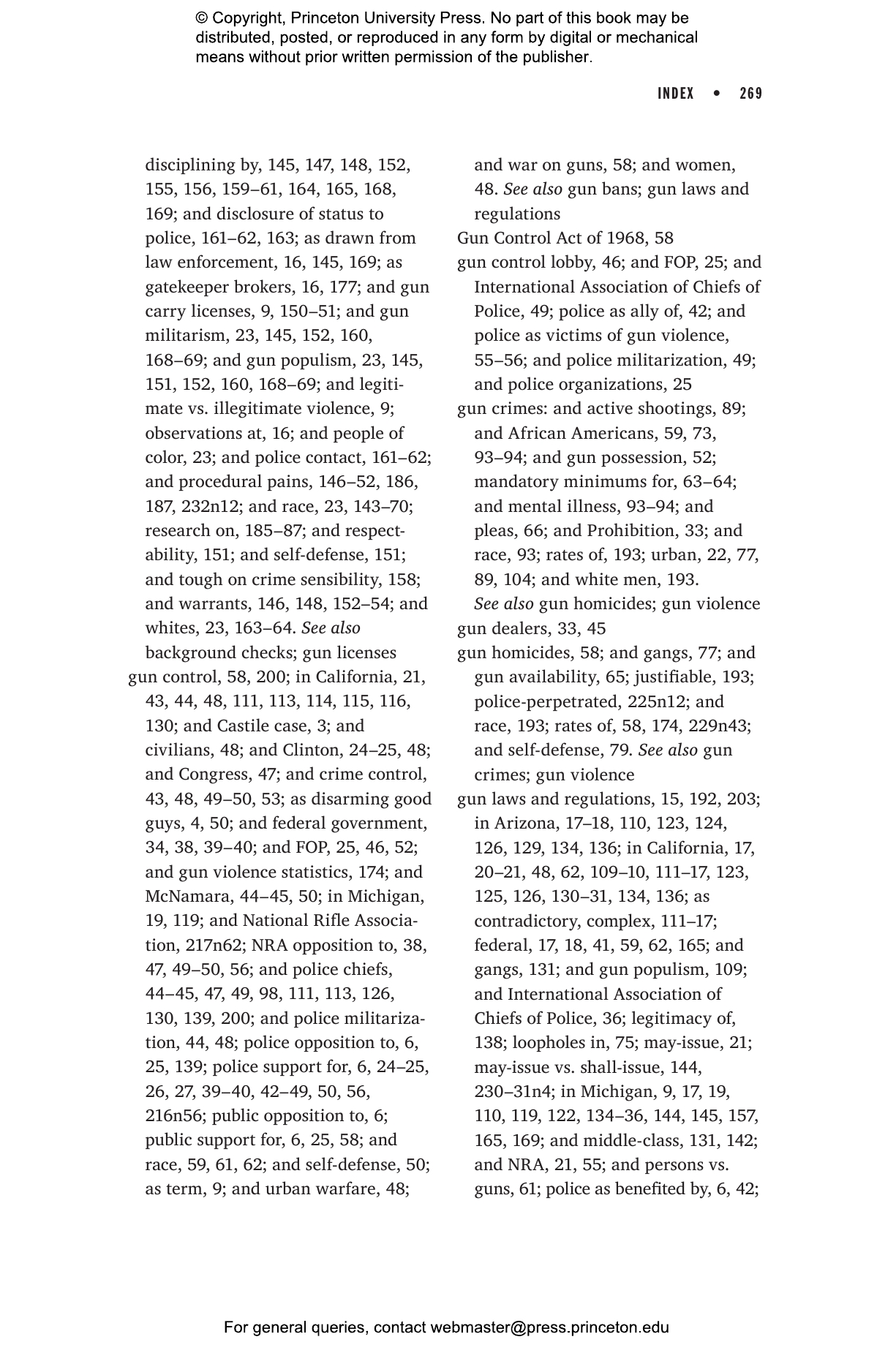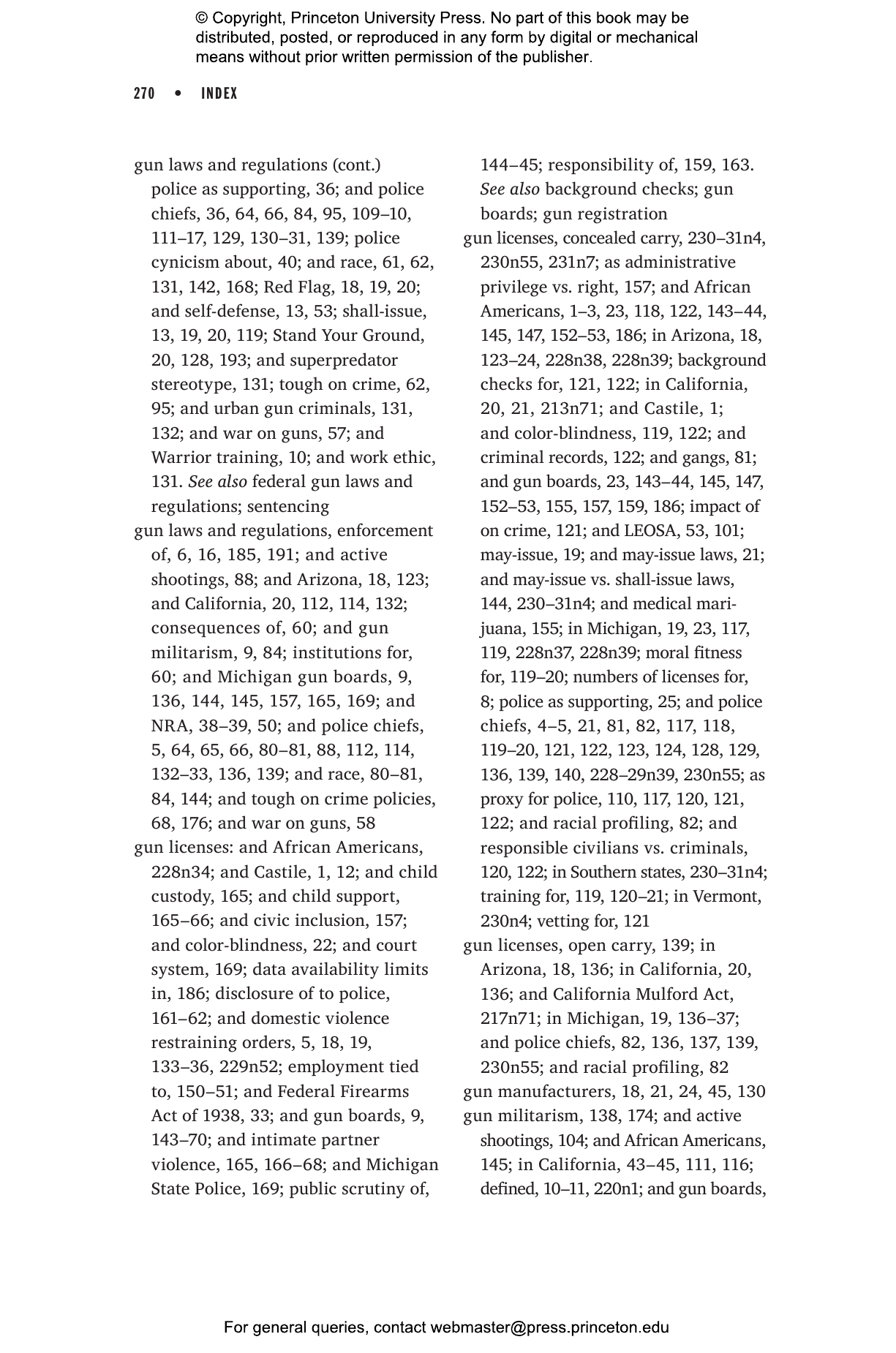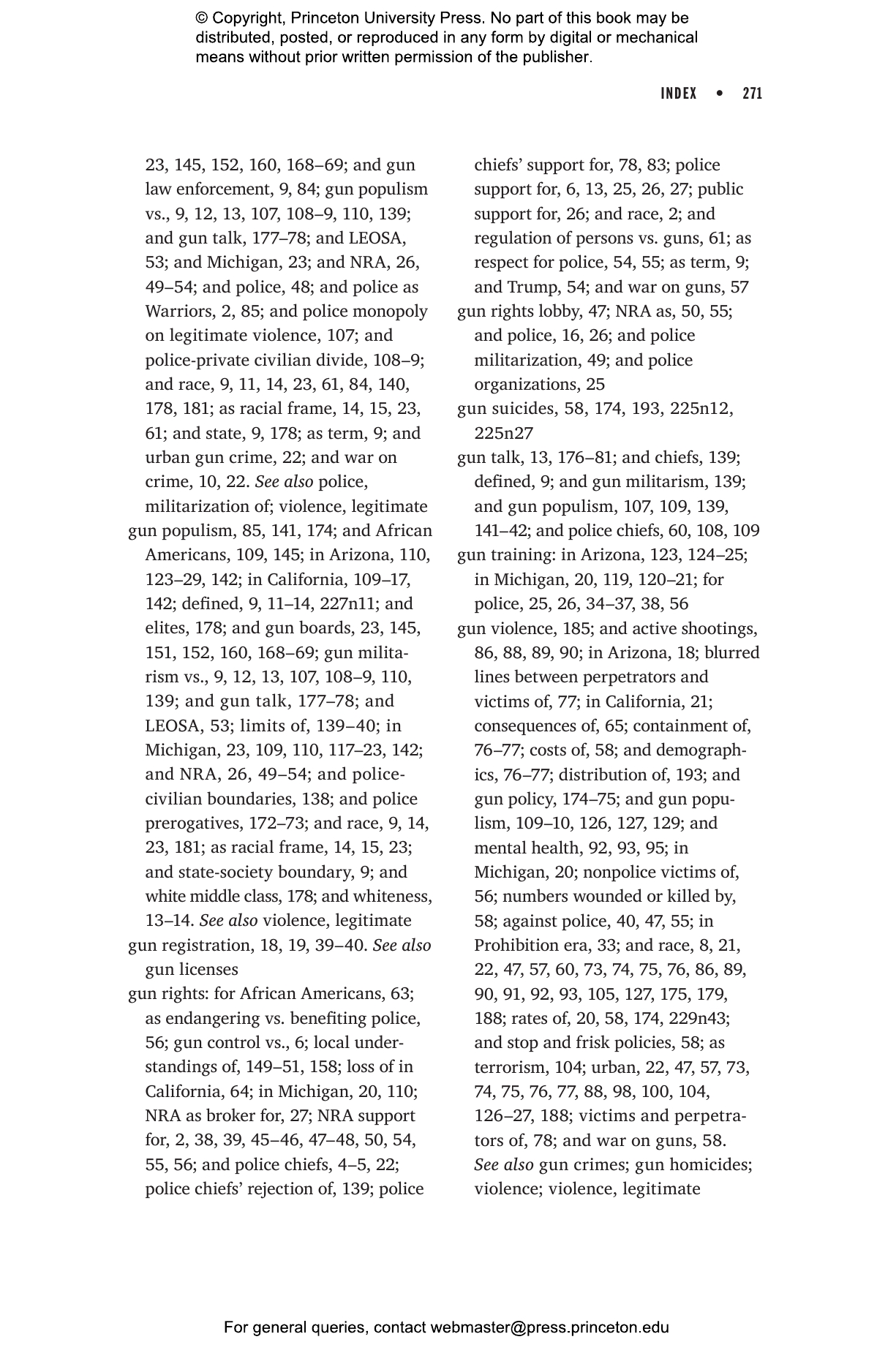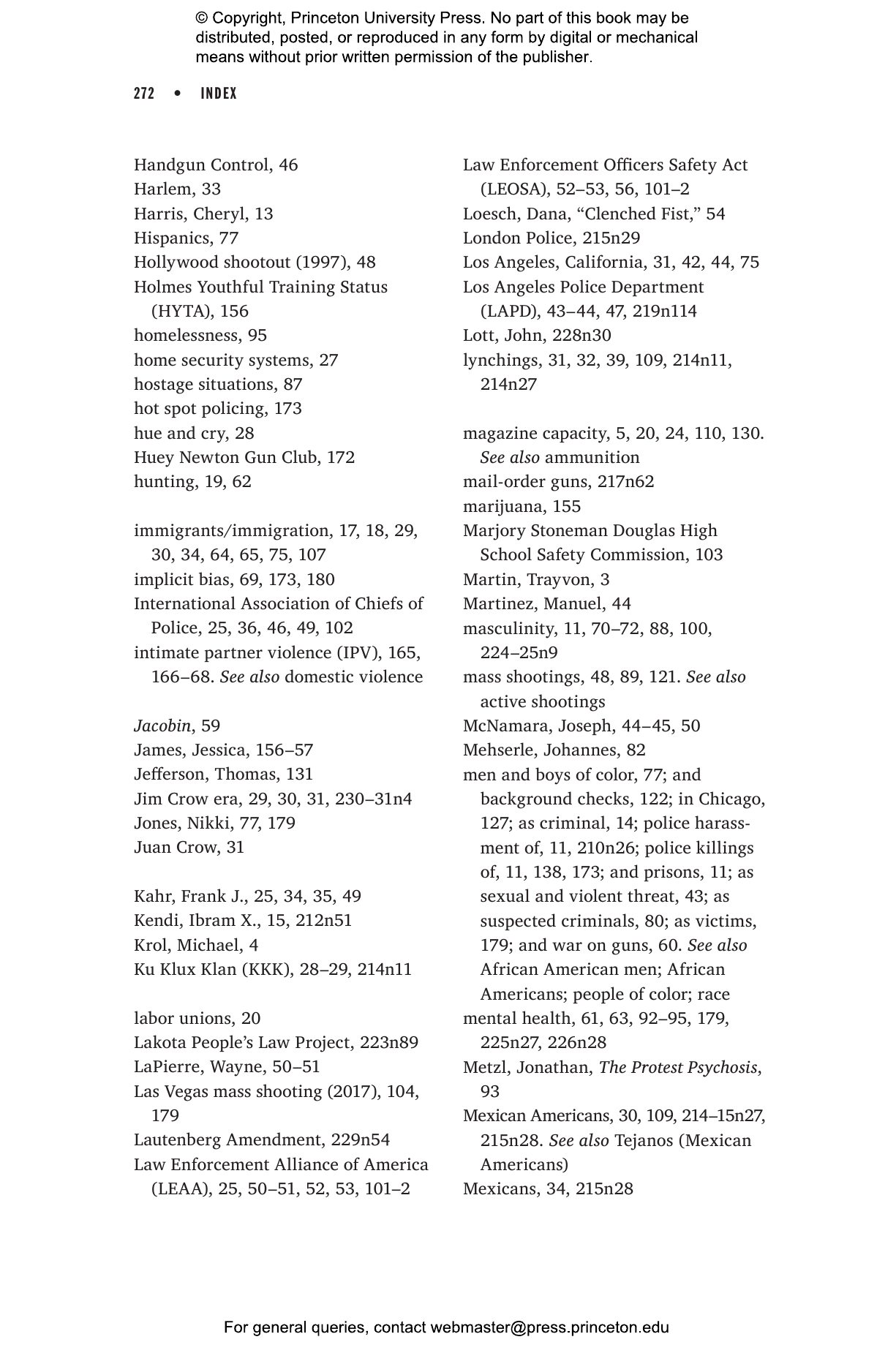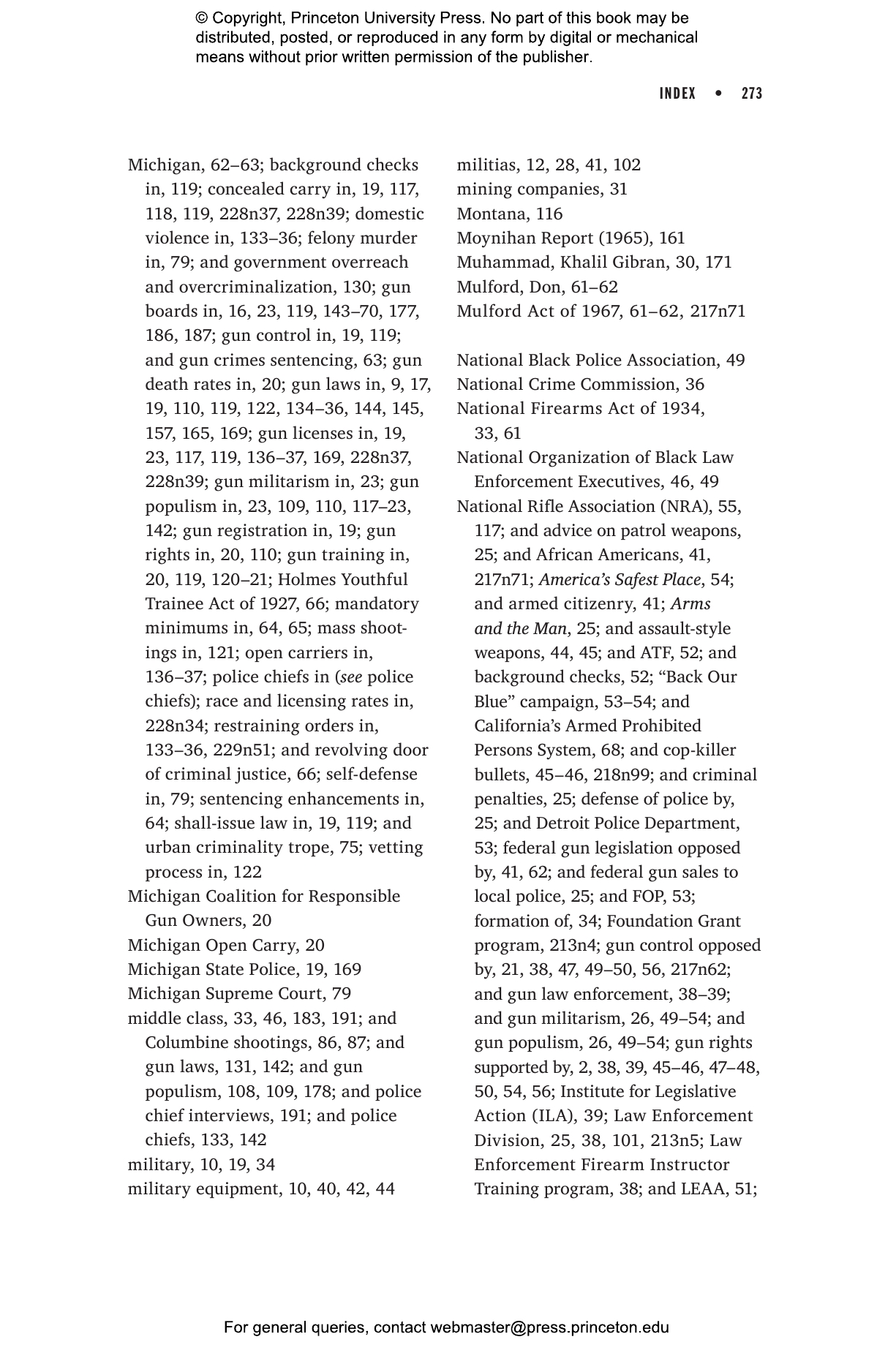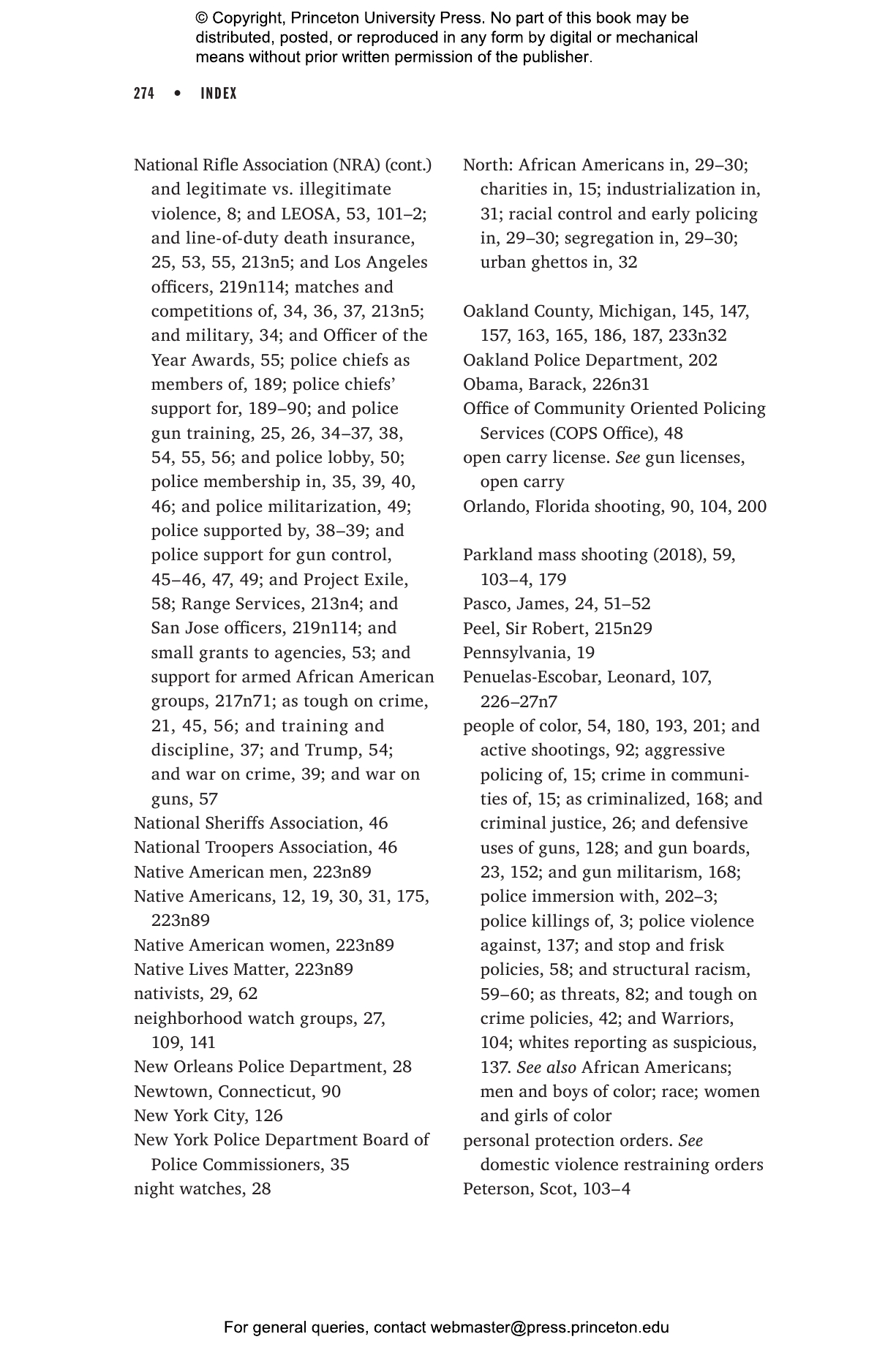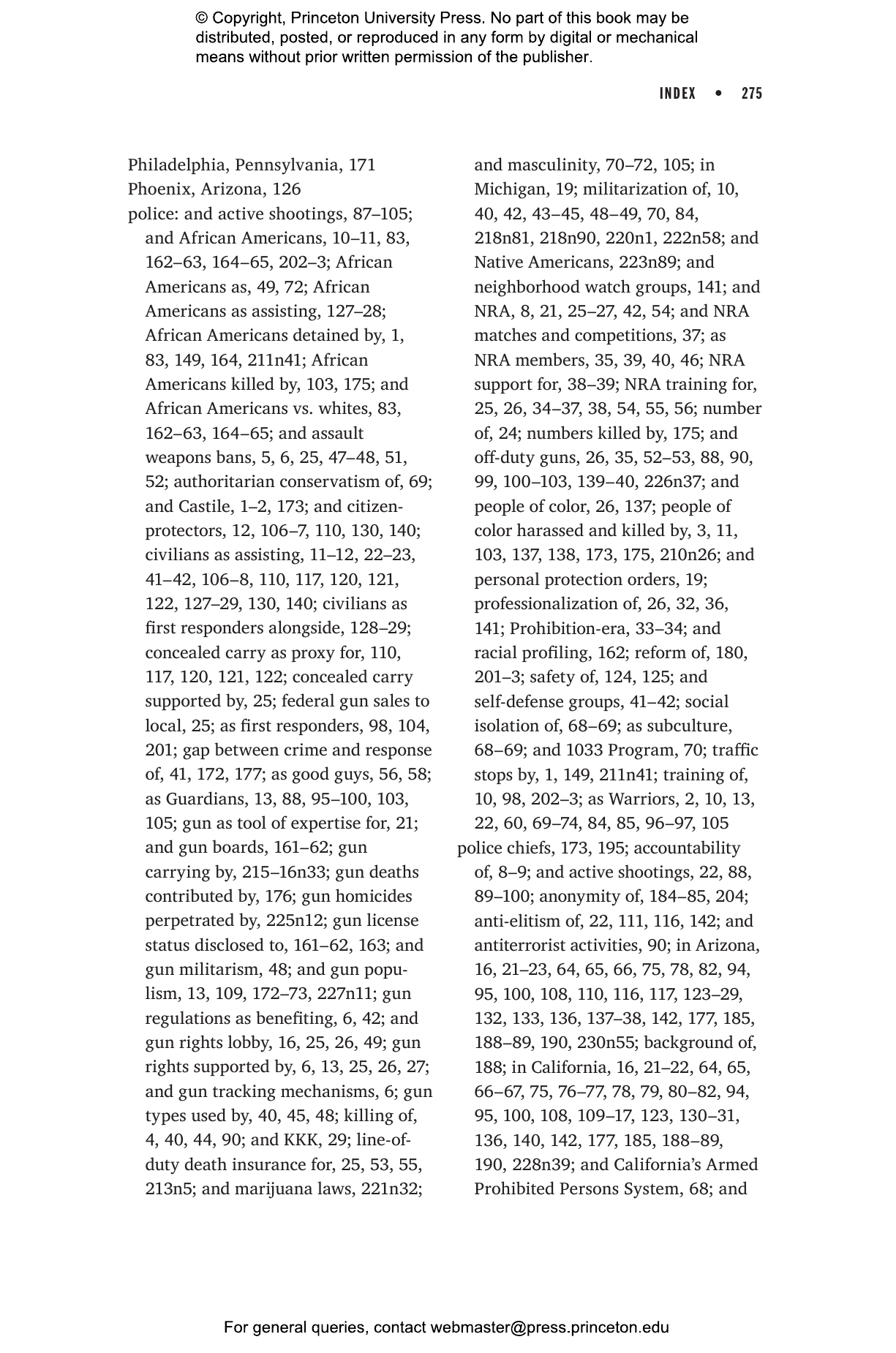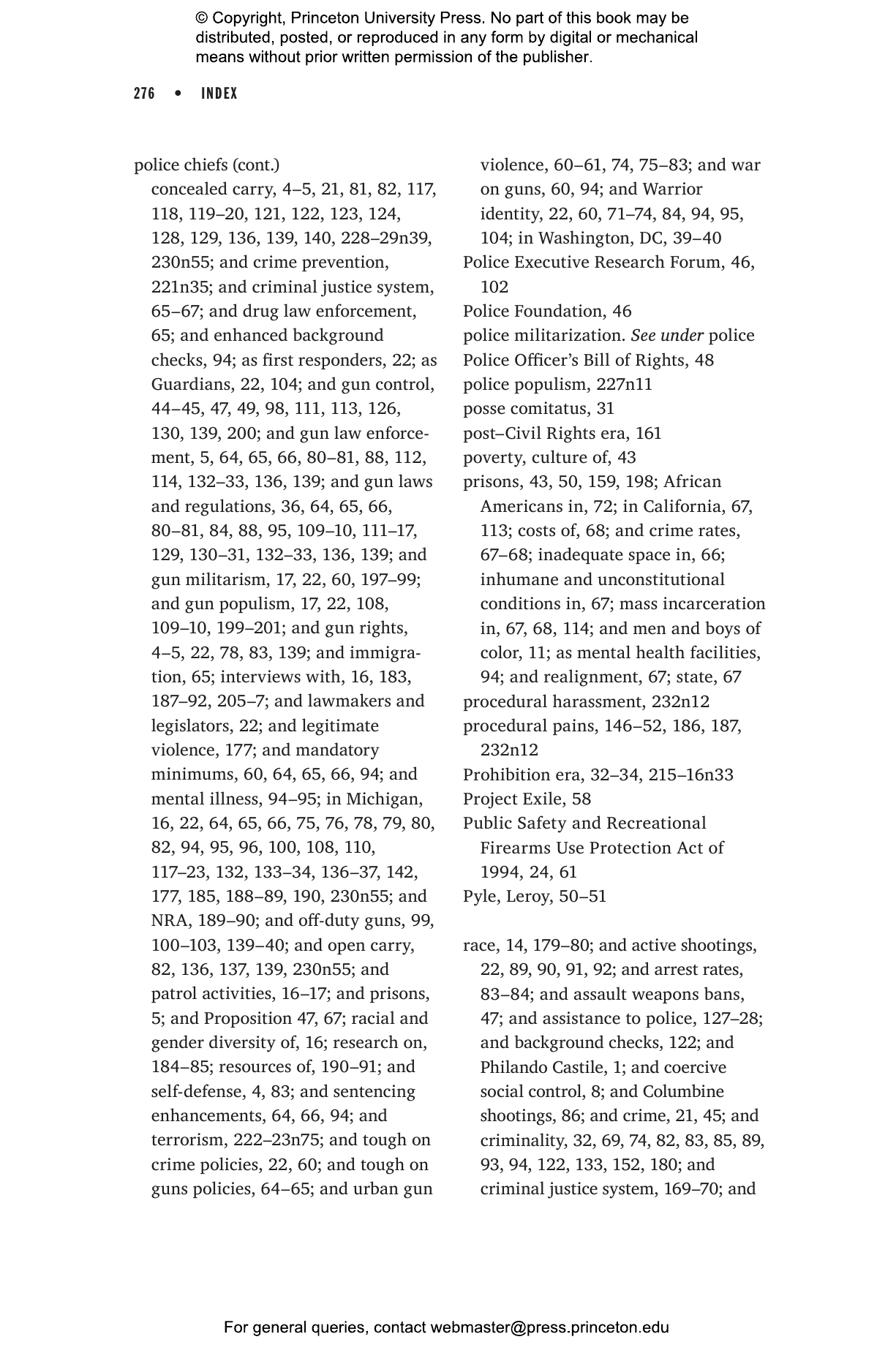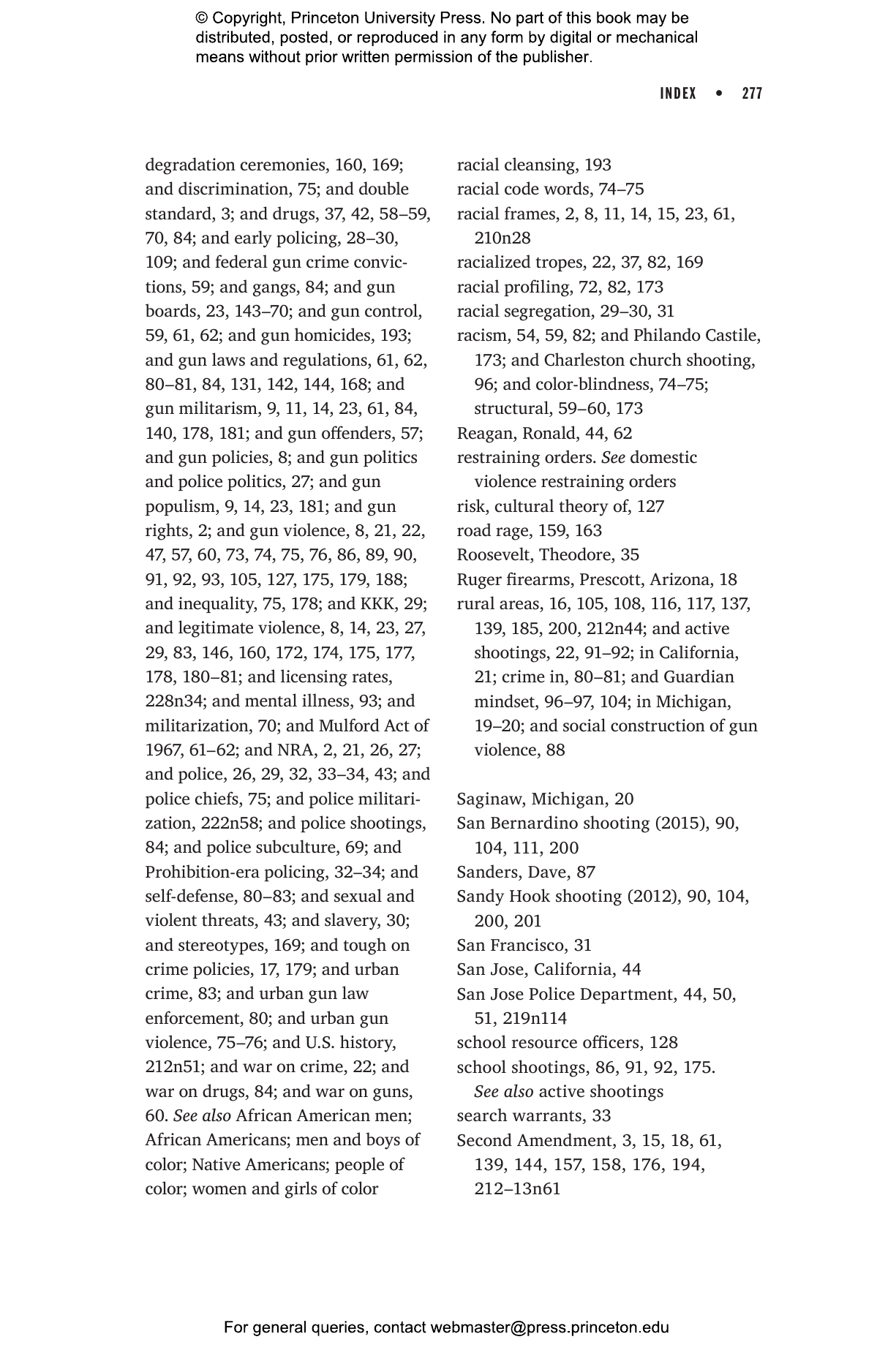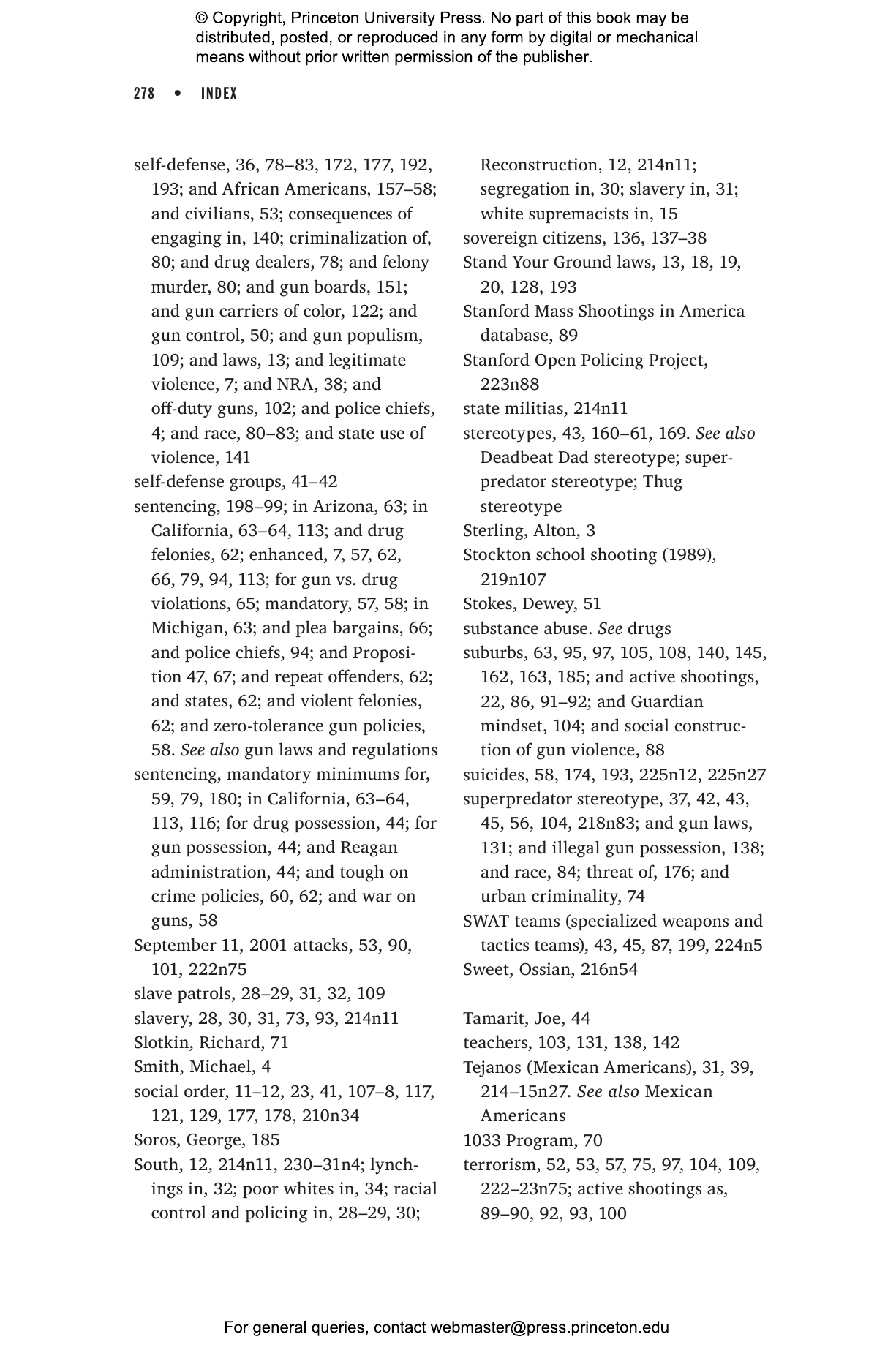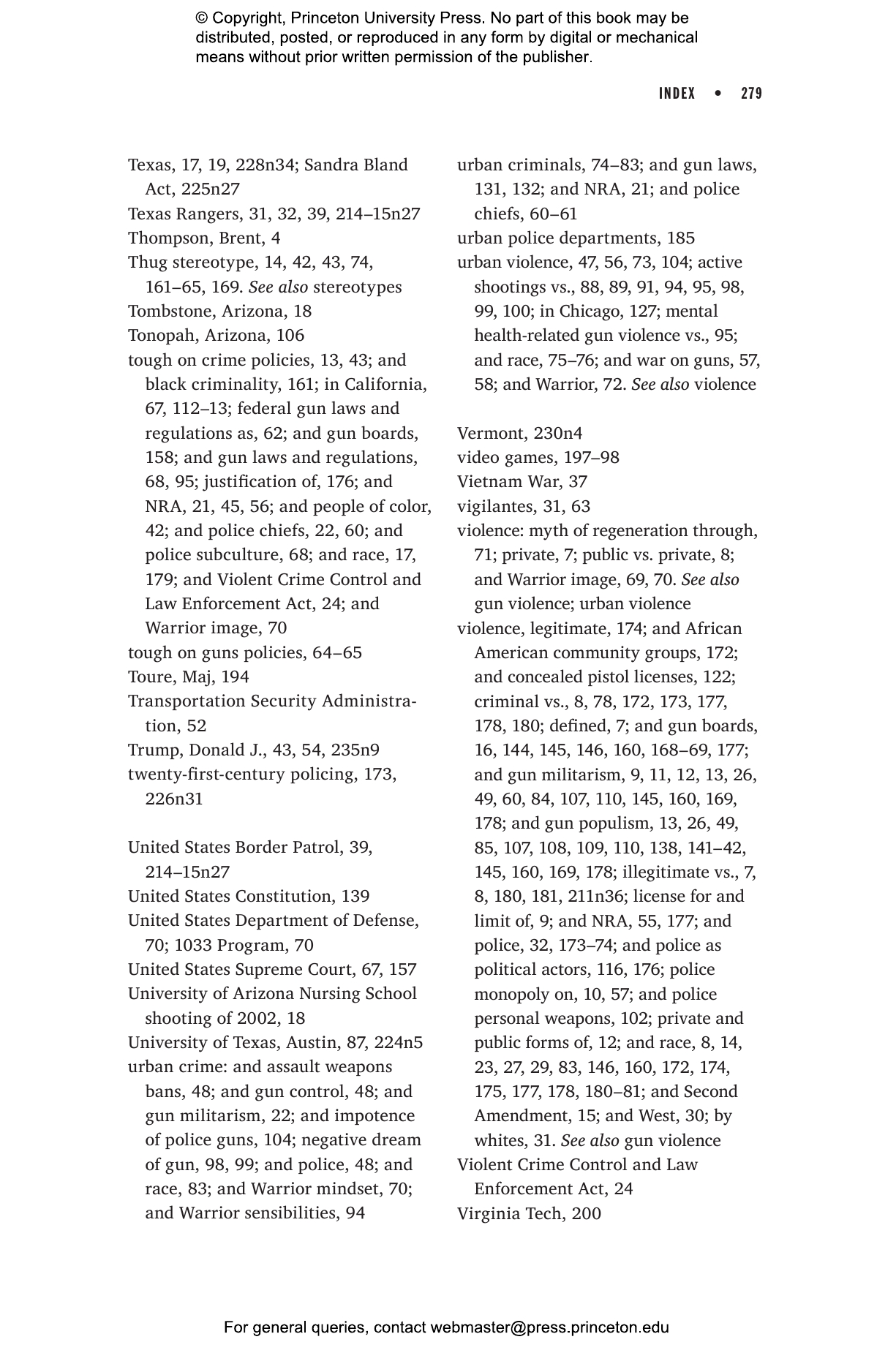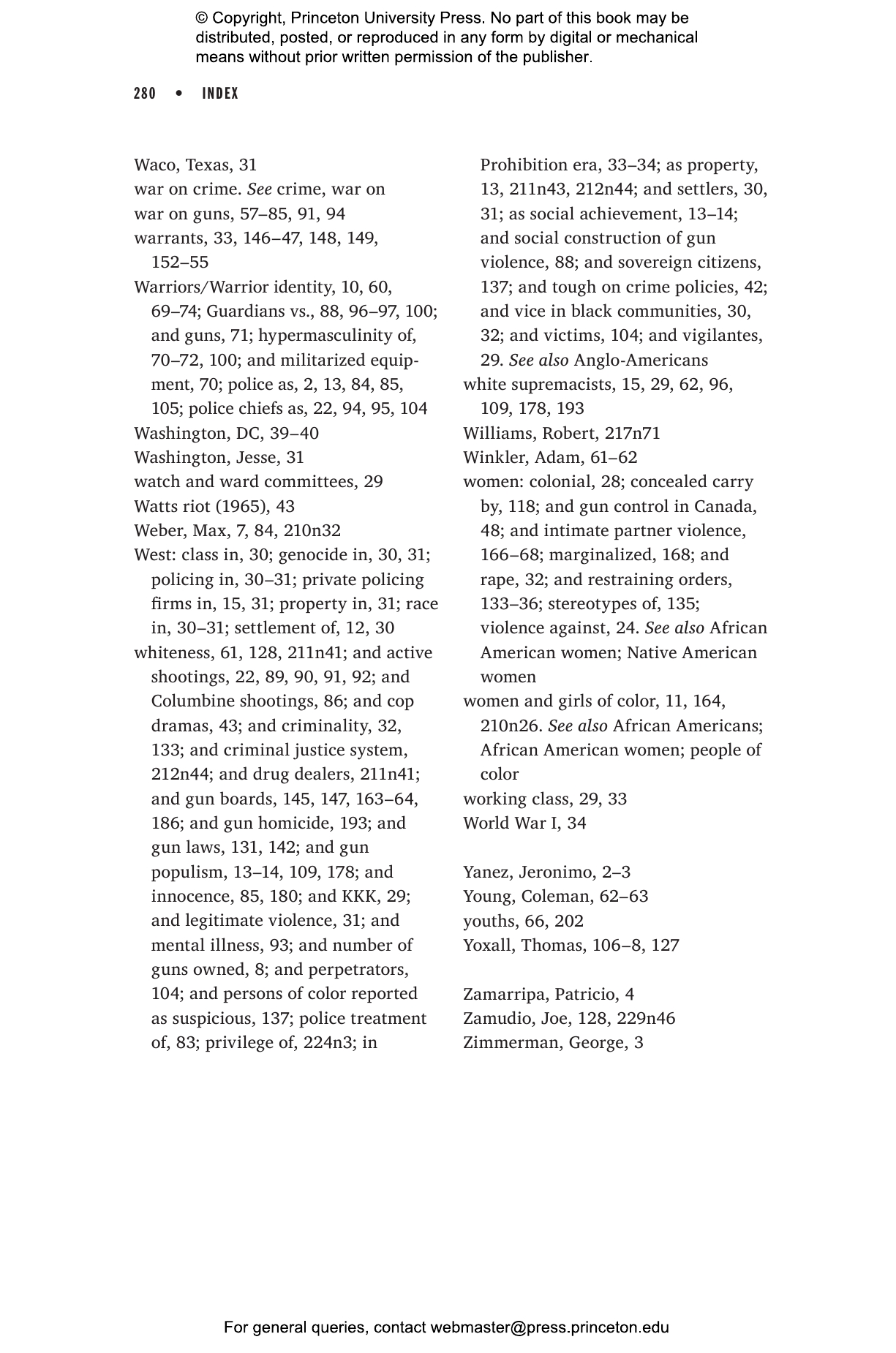The United States is steeped in guns, gun violence—and gun debates. As arguments rage on, one issue has largely been overlooked—Americans who support gun control turn to the police as enforcers of their preferred policies, but the police themselves disproportionately support gun rights over gun control. Yet who do the police believe should get gun access? When do they pursue aggressive enforcement of gun laws? And what part does race play in all of this? Policing the Second Amendment unravels the complex relationship between the police, gun violence, and race. Rethinking the terms of the gun debate, Jennifer Carlson shows how the politics of guns cannot be understood—or changed—without considering how the racial politics of crime affect police attitudes about guns.
Drawing on local and national newspapers, interviews with close to eighty police chiefs, and a rare look at gun licensing processes, Carlson explores the ways police talk about guns, and how firearms are regulated in different parts of the country. Examining how organizations such as the National Rifle Association have influenced police perspectives, she describes a troubling paradox of guns today—while color-blind laws grant civilians unprecedented rights to own, carry, and use guns, people of color face an all-too-visible system of gun criminalization. This racialized framework—undergirding who is “a good guy with a gun” versus “a bad guy with a gun”—informs and justifies how police understand and pursue public safety.
Policing the Second Amendment demonstrates that the terrain of gun politics must be reevaluated if there is to be any hope of mitigating further tragedies.
Awards and Recognition
- Co-Winner of the Distinguished Book Award, Sociology of Law Section of the American Sociological Association
Jennifer Carlson is professor of sociology at Arizona State University. She is the author of Merchants of the Right: Gun Sellers and the Crisis of American Democracy (Princeton) and Citizen-Protectors: The Everyday Politics of Guns in an Age of Decline. Her writing has appeared in such publications as the Los Angeles Times, the Wall Street Journal, and the Washington Post. She is a 2022 MacArthur Fellow.
"No one who reads this [book] will doubt that the Second Amendment has particularly deadly dimensions in minority communities."—Kirkus Reviews
"[E]xamines how the National Rifle Association became a driving influence behind American policing for over a century, and emerges with the idea that policing America has not overcome its racially charged beginning."—RJ Young, New York Times Book Review
"This book provides a warning to those police scholars who tend to blindly embrace community policing as the panacea of police reform and an answer to racially biased policing."—David E. Barlow, Ethnic and Racial Studies
"Chilling and insightful. . . .Carlson succinctly argues that attitudes about race, most specifically attitudes about African Americans, overwhelm rational debates about law gun use, gun ownership, and the 2nd Amendment itself, specifically within the law enforcement community. Importantly, Carlson brings together an academically rigorous analysis with clear and engaging writing accessible to a wide-ranging audience. For those willing to engage in good-faith debates about gun policy, Carlson’s work provides helpful insights and perspectives."—Staci L. Beavers, Law and Politics Book Review
"An incisive and meticulous book that upends the age-old gun control debates. By shifting focus from firearms to the people holding and policing them, Carlson reveals the troubling racial politics that animate gun laws and legitimize lethal state violence."—Forrest Stuart, author of Ballad of the Bullet: Gangs, Drill Music, and the Power of Online Infamy
"This compelling, provocative book balances ideas about the legitimate use of state force with the history of race and policing, as well as with police chiefs’ thinking about the role of guns in policing and society. A pleasure to read, exceptionally well written, and, at times, downright poetic, Policing the Second Amendment contributes to our understanding of policing and gun debates and our thinking about state-sanctioned violence."—Valerie Jenness, University of California, Irvine
"Timely and necessary, Policing the Second Amendment promises to significantly advance our understanding of the interrelated issues of race, policing, and firearms in the United States. This is an important book."—Michael Sierra-Arévalo, Rutgers School of Criminal Justice
